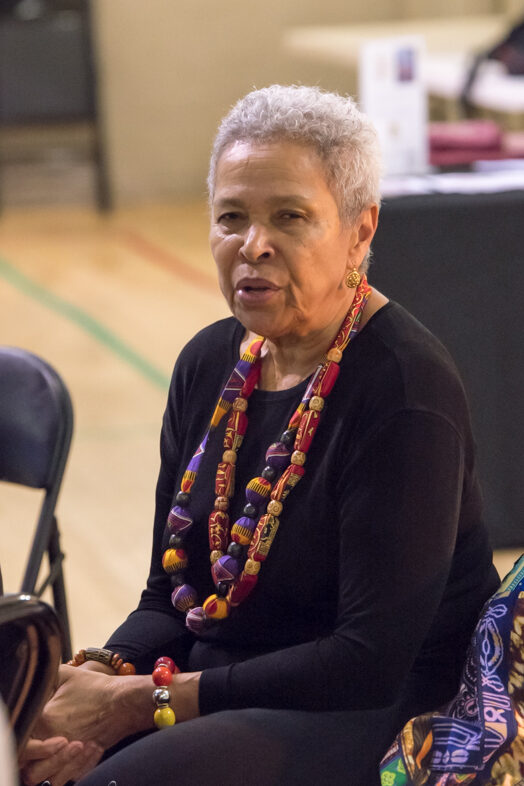
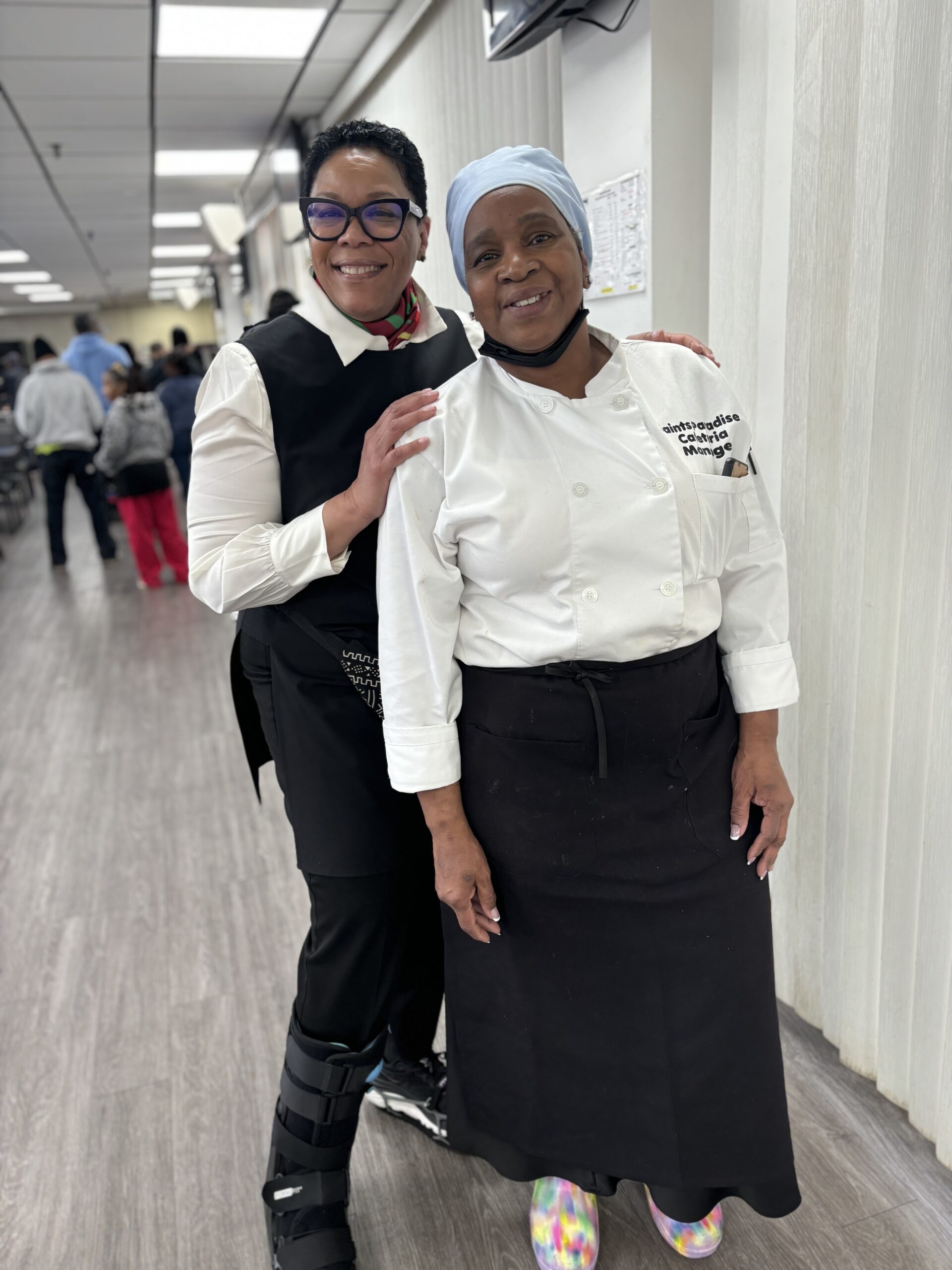
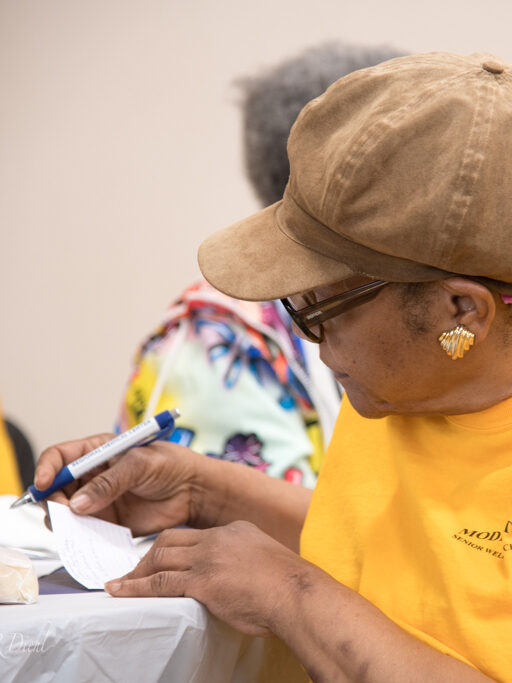
Potomac Waterways
The Black Folkways project asks how can the complex history of the Chesapeake Bay be captured using a matrix of methodologies that transform field labor and histories of enslavement into pathways for expressing freedom through performance.
Washington DC, situated near the Potomac and Anacostia Rivers has a population of about 679,000 people of which 44.4 5% self-identify as Black.¹ It was founded in 1790 as a land area designated as a site for a national capital. The region was carved out of territory in Virginia and Maryland and employees who work in the district live in both states. Enslaved Africans assisted in the construction of the city.² A detailed history of the development of Washington DC is located on the Library of Congress Website.
The Potomac River was a major trade highway for enslaved African Americans who worked moving goods between the waterfronts of Alexandria, Georgetown, and the Chesapeake Bay. The Potomac, as the last physical barrier between the North from the South, was especially important to forces trying to preserve slavery and/or profit from those trying to escape.³
Shortly after Emancipation, in 1867, Howard University was founded to educate a newly-free cohort of African American of workers and scholars. Howard University continues to rank among the highest producers of Black professionals in medicine, dentistry, pharmacy, engineering, nursing, architecture, religion, law, music, social work and education.⁴
Between the 1930s and 1950s, educated and skilled African Americans came to the city to claim well-paid federal jobs. Bakes sales and community events united newly arriving workers.
African American communities living along the river have used the estuary for an “underground railway” to freedom, as a source of food and nutrition, as a source for medicine, and as a site of recreation. This website uses historical data and oral histories to document the ongoing presence and cultural resiliency of African American people along the Washington DC area waterways.
¹ Washington DC Census, 2023. https://www.census.gov/quickfacts/fact/table/DC/PST045223
² Mann, Lisa, “The Complexities of Slavery in the Nation’s Capitol,” The White House Historical Association, accesses February 3, 2025. https://www.whitehousehistory.org/the-complexities-of-slavery-in-the-nations-capital
³ Cummins, Jim. Speech delivers at the t The Accokeek Foundation’s African American Heritage Day, Sept 25, 2010 to The Interstate Commission on the Potomac River Basin. He documents the proliferation of Shad fishing in the Washington DC area, documenting it with photographs and historical analysis. https://www.potomacriver.org/wp-content/uploads/2014/12/afamwatermen.pdf
⁴ https://howard.edu/about/historyThe Black Folkways project asks how can the complex history of the Chesapeake Bay be captured using a matrix of methodologies that transform field labor and histories of enslavement into pathways for expressing freedom through performance.
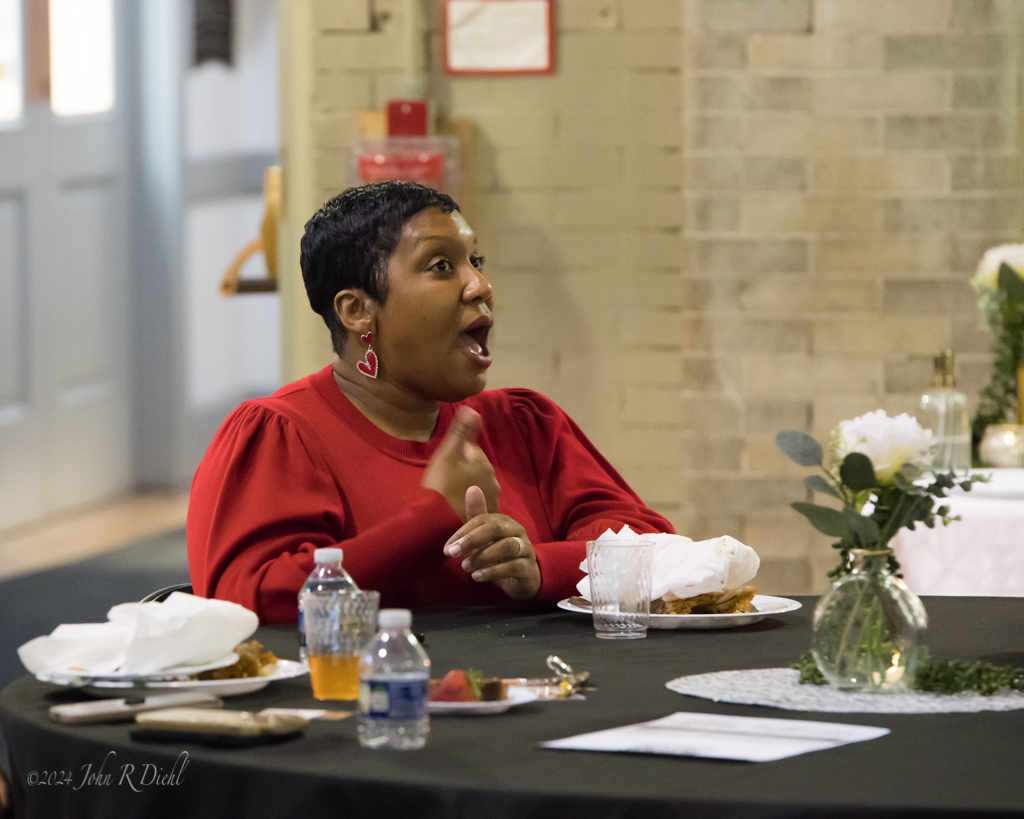
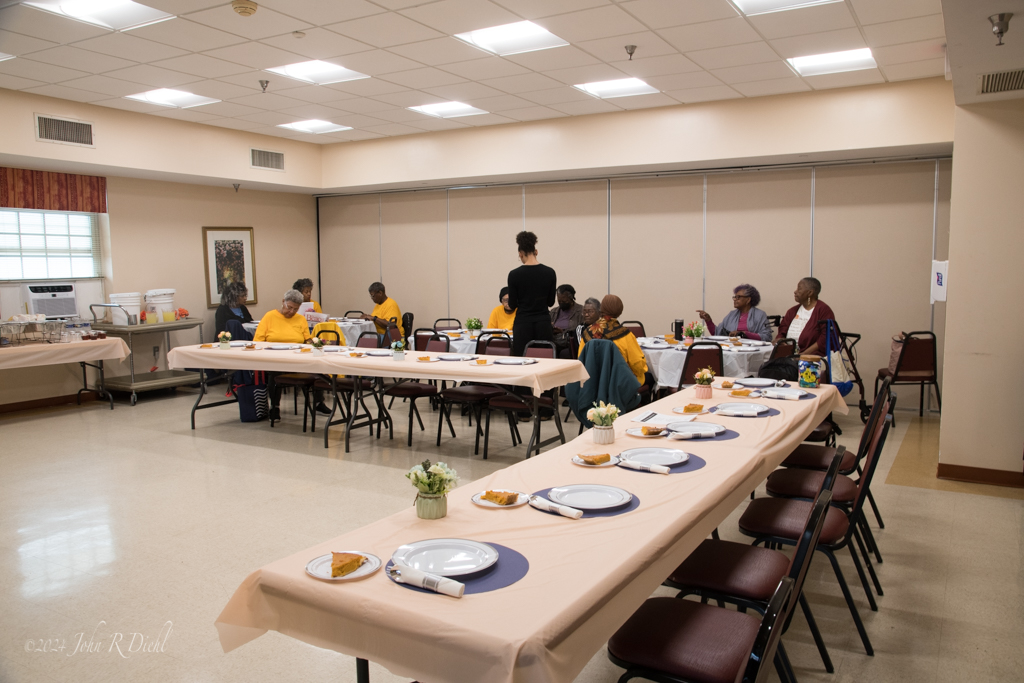
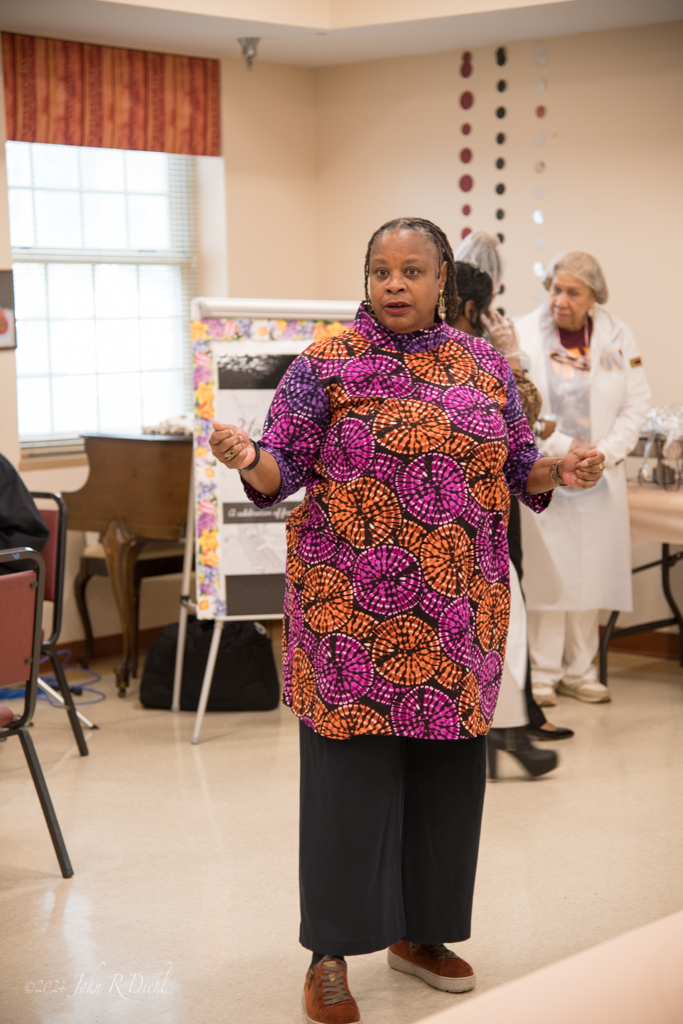
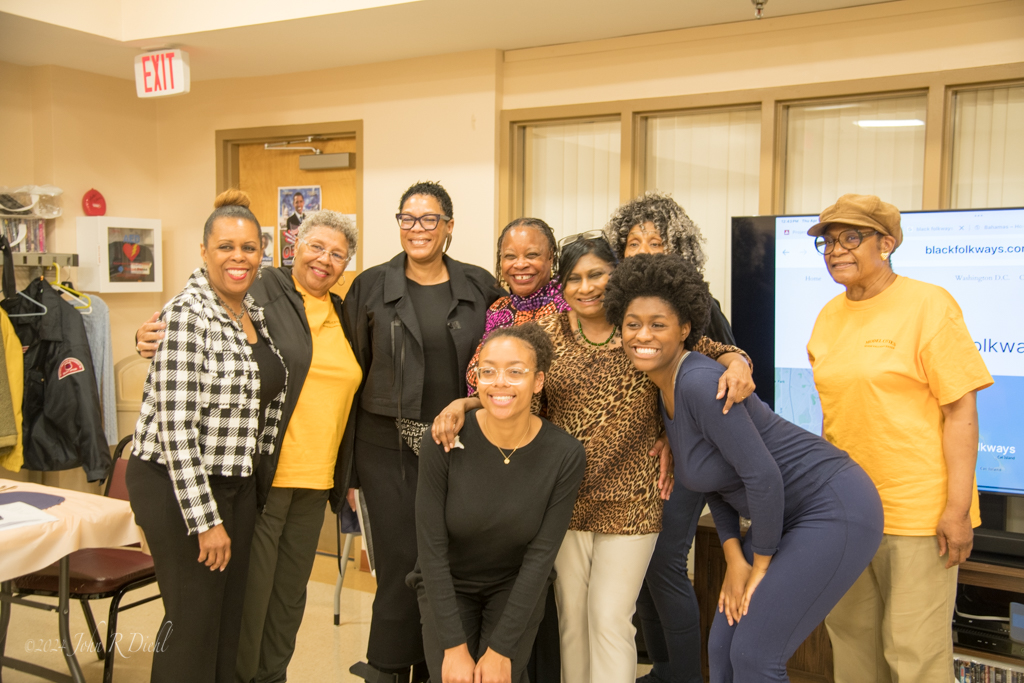
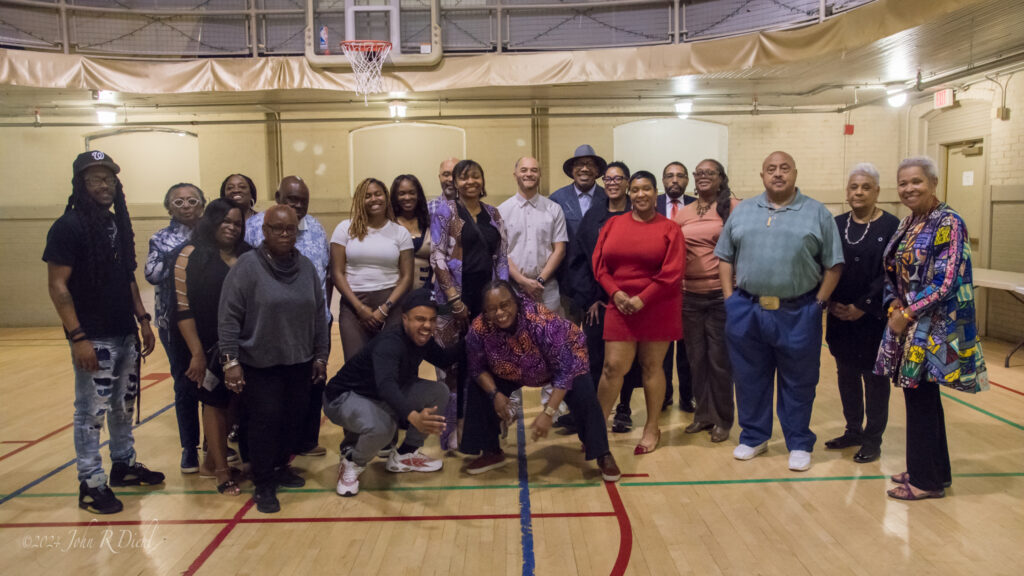
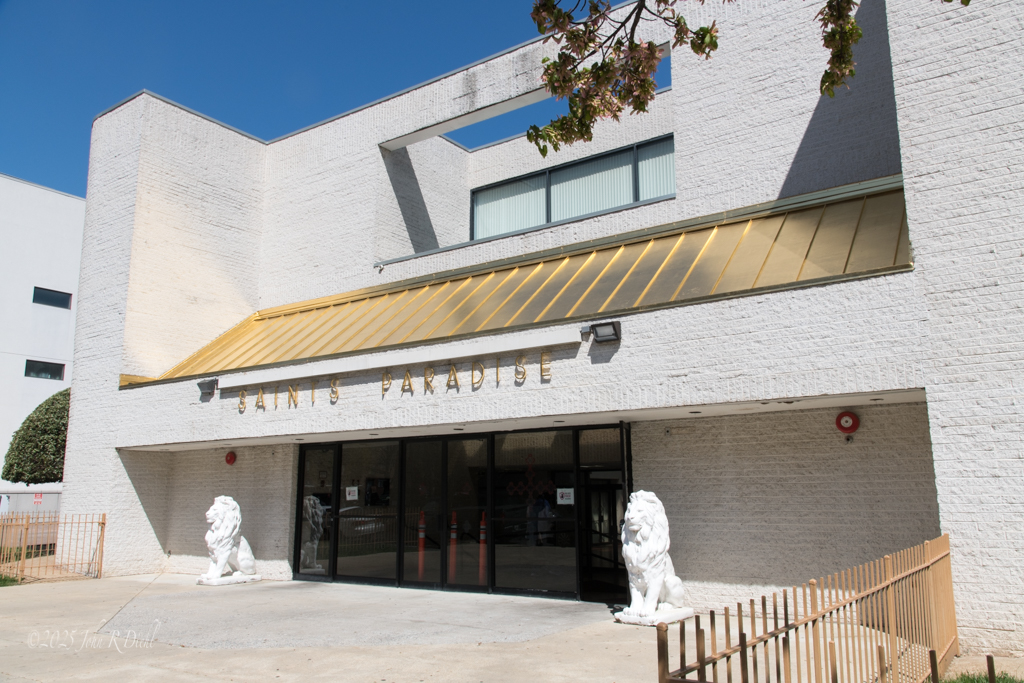
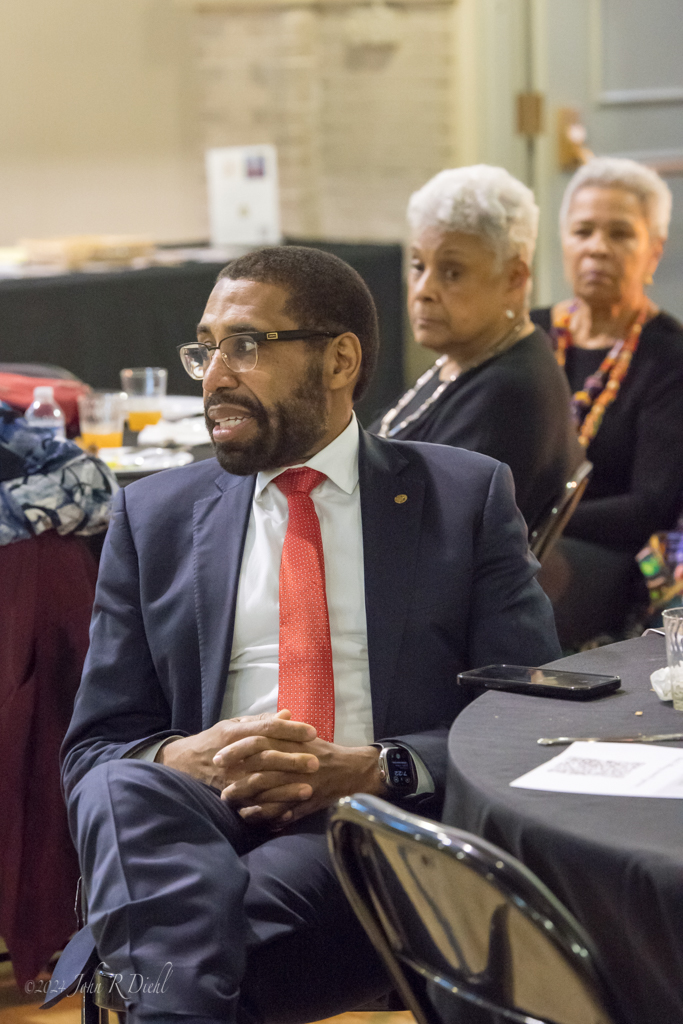
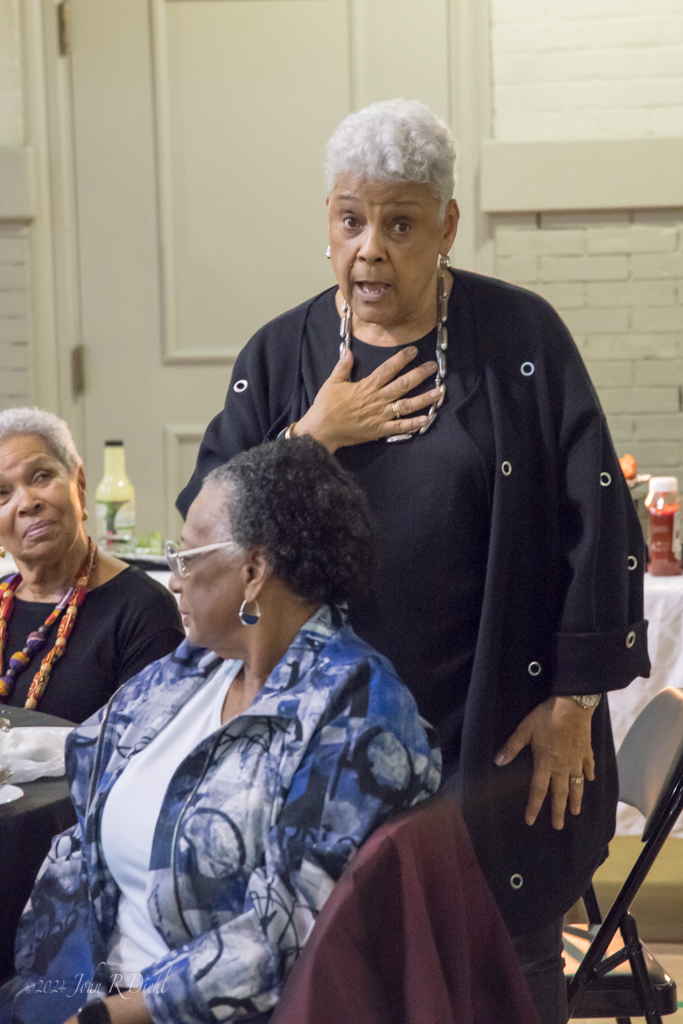
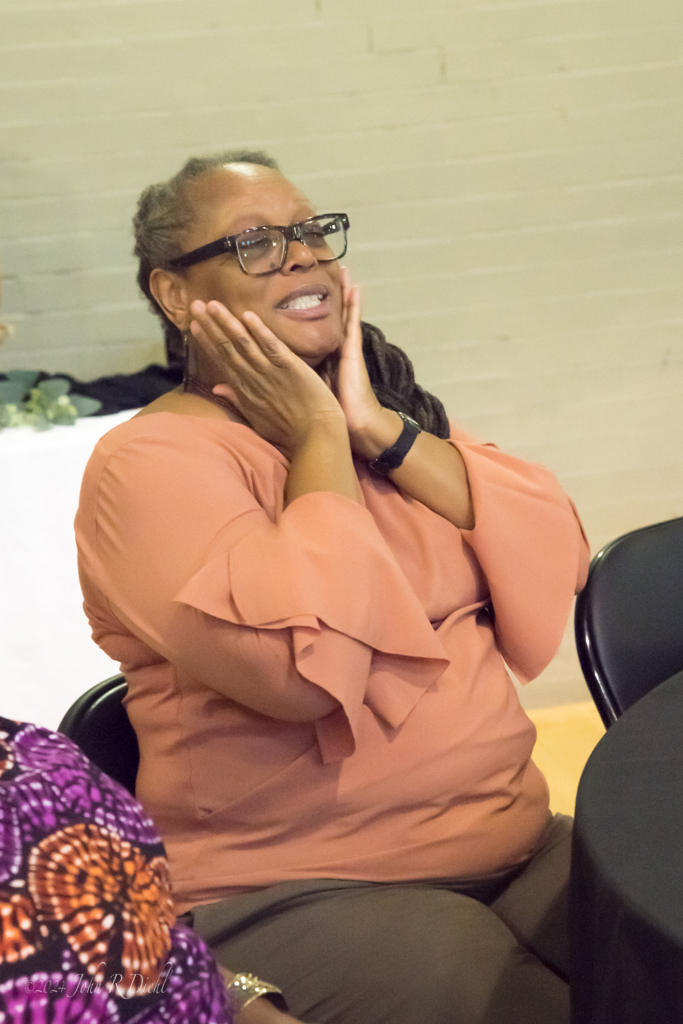
Stamford “Fred” Hoston
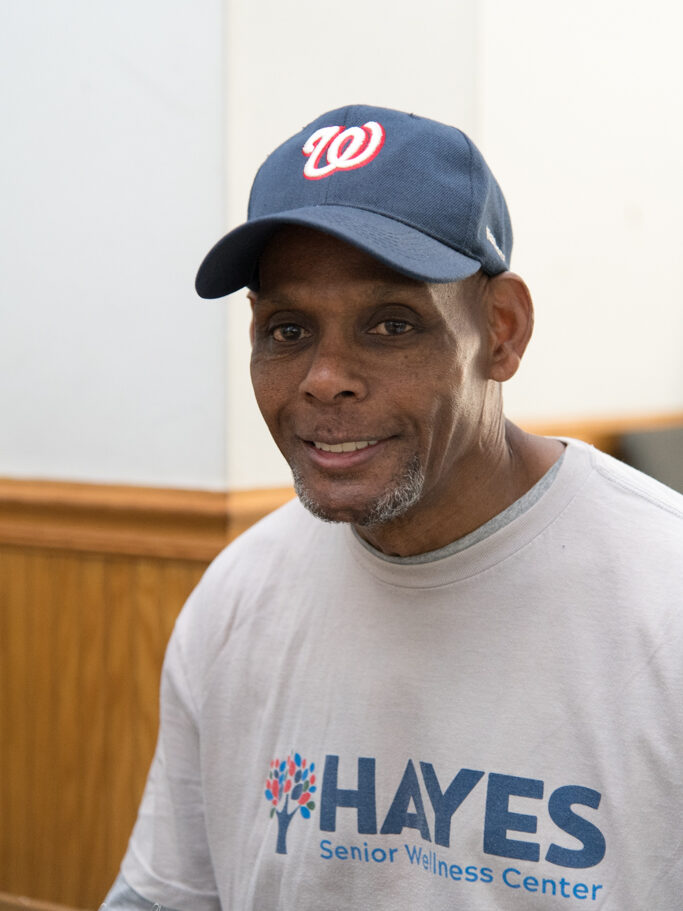
Specialty/Key Words: Washington D.C. Foodways, Community, Legacy, Food and Memory, Traditions, Church, Religion, Resiliency, Cultural Preservation, Family, Food Scarcity, Migration, Spirituality, Health
Interview Summary: Born and raised in Washington, D.C., Stamford “Fred” Hoston is a lifelong resident of the city with deep family roots in the DMV area. Fred was interviewed at Saints Paradise Church, where he shared stories from his upbringing in a large, religious family of eight children. His parents, originally from West Virginia, worked as a truck driver and a typist at the Census Bureau. Though food in the household was simple and often unseasoned, Fred fondly recalled the central role ice cream played in his childhood—his father worked at an ice cream plant, and his mother became known in the neighborhood for handing out ice cream, candy, and showing movies at their corner house. Fred described a tight-knit community shaped by faith, music, and modest means, where love outweighed material wealth. He also spoke about his involvement at the Hayes Senior Wellness Center, his love for basketball, and the importance of routine and movement in staying active as a senior.
Select Audio Clip:
Zenola Robertson
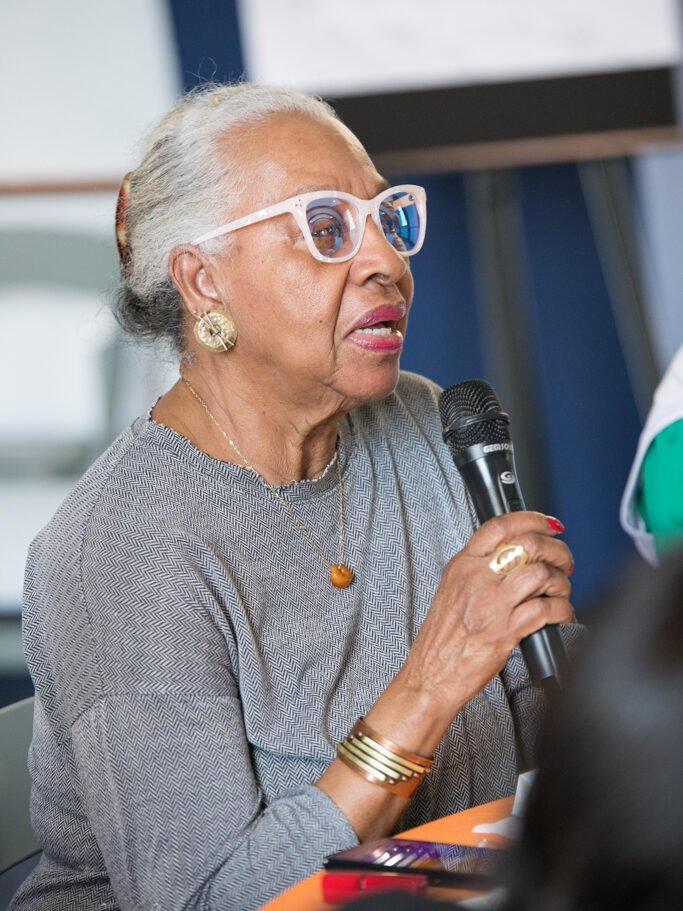
Specialty/Key Words: Washington D.C., Home Cooking, Tradition, Family, Legacy, Storytelling, Community, Southern Hospitality, Preservation, Ancestral Memory, Black Joy, Seasonal Food Practices, South Carolina
Interview Summary: Zenola Robertson shared her deep familial and cultural ties to South Carolina, specifically St. Stephens, where her mother Iness was from. She reflected on traveling back and forth between South Carolina and other places, recognizing names like Santee, Sumter, and Moncks Corner from family stories. Zenola emphasized the strong sense of unity around food in Southern culture, recounting memories of her mother’s cooking—particularly her homemade wine and fruitcake, affectionately called “drunk cake” due to the rum she added. The wine would ferment over the summer and be ready by Thanksgiving, when family would gather to enjoy it along with stories of the South. Zenola fondly described the generosity of Southern hospitality, where food was a constant expression of love: “You go home, you eat.” She ended by expressing gratitude for the chance to share her memories.
Select Audio Clip:
Laverte Mathis and Tyrone Goodwyn
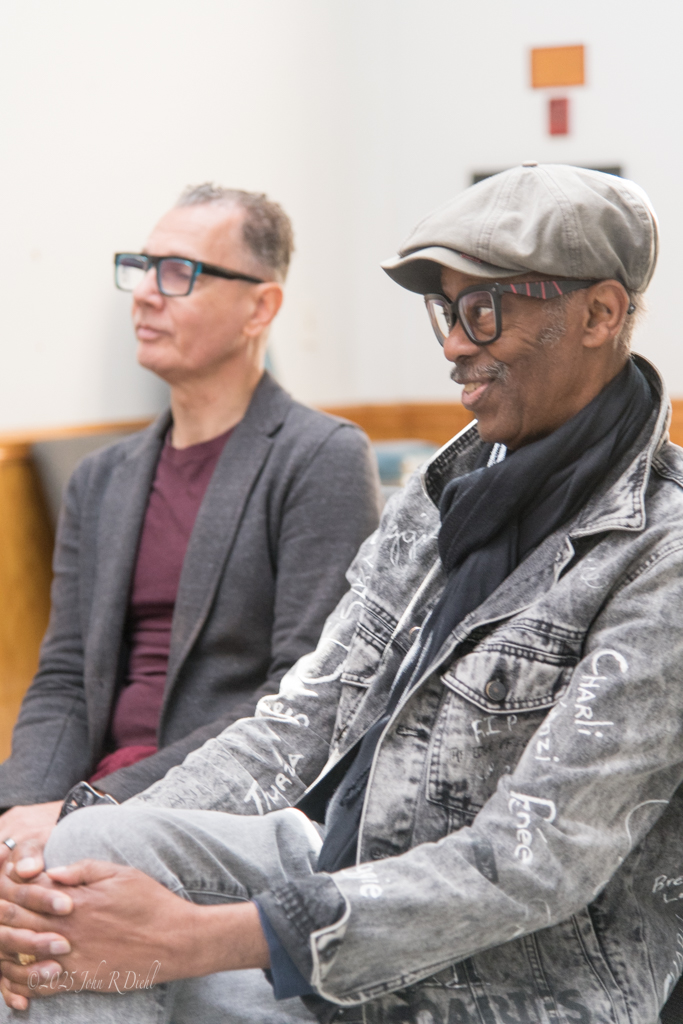
Specialty/Key Words: Washington D.C. Foodways, Community, Family, Food and Memory, Traditions, Migration, Southern Roots, Ancestral Knowledge, Culture, Resilience, Health, Healing, Cooking, Storytelling, Eastern Shore, Genealogy, Identity, Home, Spirituality, Intergenerational Bonds
Interview Summary: Washington, D.C. native Laverte Mathis and longtime resident Tyrone Goodwyn were interviewed together at a site closely tied to their shared sense of home and history. Both men reflected on their Southern roots—Mathis’s family from Georgia and Goodwyn’s from North Carolina and Tidewater, Virginia—and the deep culinary traditions that have shaped their lives. Mathis spoke of being raised by a matriarchal aunt who lovingly prepared fish and spaghetti every Friday, mashing the fish for the children. He also recalled his deep love for chitlins and the trust and care required to prepare them properly. Goodwyn shared how cooking is a spiritual and healing act for him, and that returning to his hometown to purchase Carolina sausage remains a must-do tradition. He also described healing himself through making lentils with smoked pig parts on a cold, gray week. The two friends discussed family recipes—Mathis’s precise potato salad and Goodwyn’s rare, grated sweet potato pudding—as well as their shared reverence for prayer and ancestral presence before meals.
Select Audio Clip:
Stene Johnson
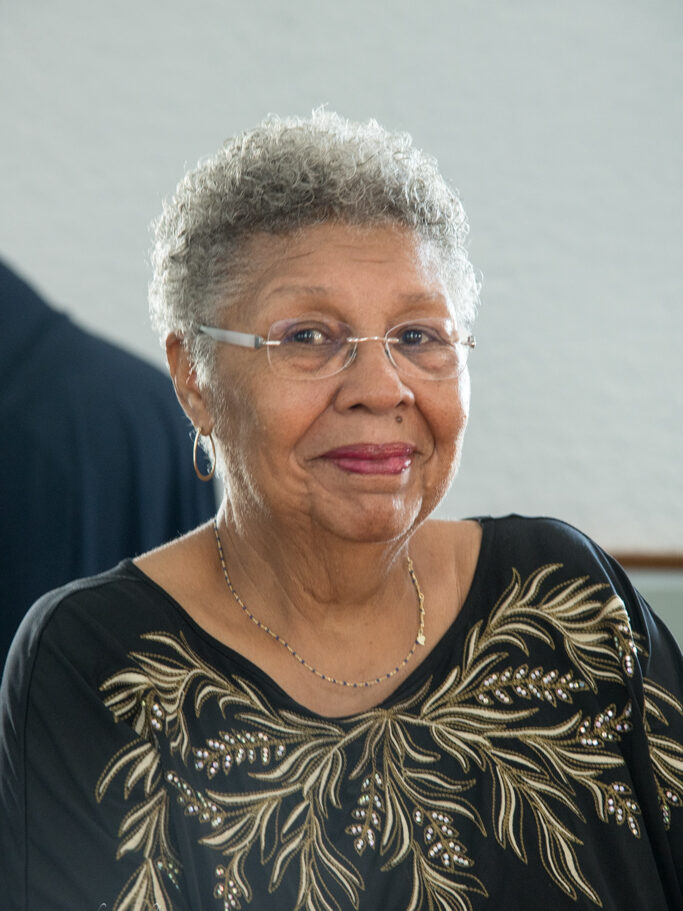
Specialty/Key Words: Washington D.C., South Carolina,, Home Cooking, Tradition, Family, Community , Storytelling, Self-Sufficiency, Legacy, Memory, Simplicity, Resilience, Intergenerational Values, Black Joy
Interview Summary: Stene Johnson reflected on her upbringing in Sumter, South Carolina, where self-sufficiency and community were a way of life. She recalled that there was no need for grocery stores—families grew their own food and shared it generously. Visitors were always welcomed to eat, usually outside under the trees, since there was no air conditioning. These spontaneous gatherings were more than reunions—they were a way of being. While children often ate separately from adults, they shared the same meals. Stene noted how, on Sundays, some families fed pastors first and children last—something she didn’t agree with, believing family should come first. She spoke of a time when even basics like toothpaste weren’t store-bought; instead, baking soda and salt were used. Most store trips were only for necessities like washing powder, or soap. Stene ended with a powerful message about remembering one’s roots: “If you forget where you came from, you have no idea where you’re going.”
Select Audio Clip:
Group Interview: Harold Little, Joyce Robinson-Paul, and Mac-Arthur Mills

Specialty/Key Words: Washington D.C., Foodways, Community, Family, Southern Roots, Migration, Military Service, Federal Employment, Soul Food, Cooking, Traditions, Health, Healing, Gospel Music, Church, Religion, Education, Storytelling, Identity, Ancestral Knowledge, Neighborhood Change, Intergenerational Bonds, Shaw, Takoma Park, Foggy Bottom, Langston Terrace, Resilience, Culture, Home, Spirituality, Legacy, Moderation
Interview Summary: Born and raised in Washington, D.C., Joyce Robinson-Paul, Harold Little, and Mac-Arthur Mills share deep roots in the city’s Black communities, including Shaw, Takoma, and Foggy Bottom. The three were interviewed at a church central to their lives, where annual gospel concerts, soul food, and fellowship continue to bring people together. Joyce, a native Washingtonian, has attended the church for over 50 years. Harold, an Air Force veteran and engineer, and Mac, a Vietnam-era veteran, reflect on their family histories, including migration from the South in search of better opportunities and federal employment. They discussed the importance of food in D.C.’s culture—both as nourishment and community tradition—highlighting beloved dishes like sweet potato pie and banana pudding. They emphasized moderation, the shift toward healthier eating, and the loss of soul food institutions over time. The interview also explored education, neighborhood change, military service, and the value of intergenerational care. Locations significant to their stories include Langston Terrace, Shaw, Takoma Park, and Snow’s Court in Foggy Bottom.
Select Audio Clip:
Group Interview: Godwin Bell, Sheila Gibbs, and Stanley Lemon
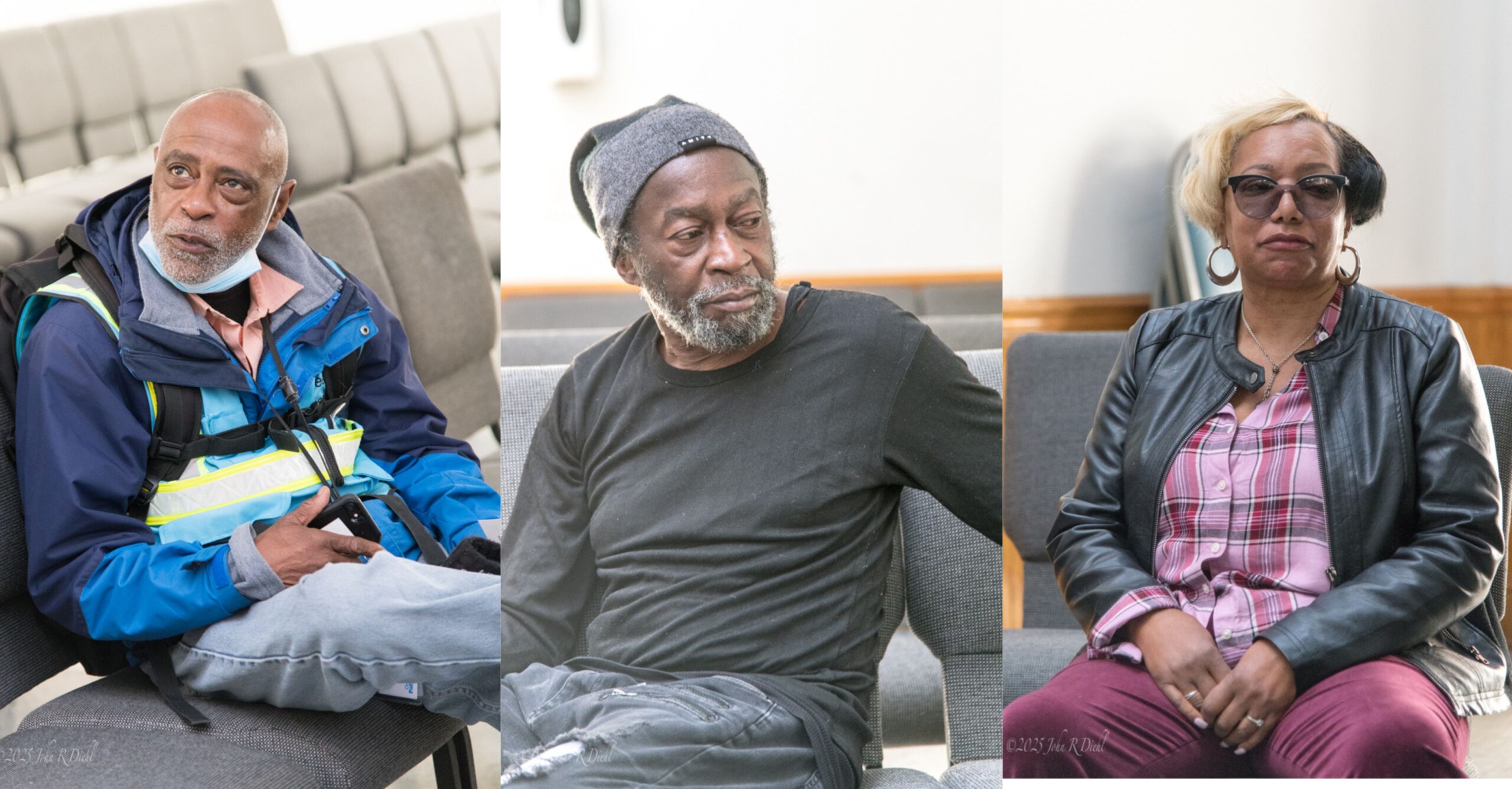
Specialty/Key Words: Washington D.C., Food, Community, Resilience, Soul food, Daddy Grace Church, Health, Heailing, Black culture, Family, Fellowship, Diet, Storytelling, Tradition, Spirituality, Gathering, Connection, Culture
Interview Summary:This group conversation, led by Anita Gonzalez, explores the role of food in Black cultural resilience, healing, and community-building. Participants reflect on their personal food journeys, including Stanley Lemon, who moved from South Carolina and found comfort and community through soul food in Washington, D.C. He shares how changing his diet and biking helped him lose weight and improve his health. Sheila Gibbs talks about finding a sense of routine, connection, and nourishment at Daddy Grace’s Church Saint’s Paradise Cafeteria, an important local food institution. The discussion emphasizes food as a medium for storytelling, fellowship, health, and cultural continuity, while also touching on the practical aspects of local food spots, diet choices, and community dynamics.
Select Audio Clip:
Amelia Govan
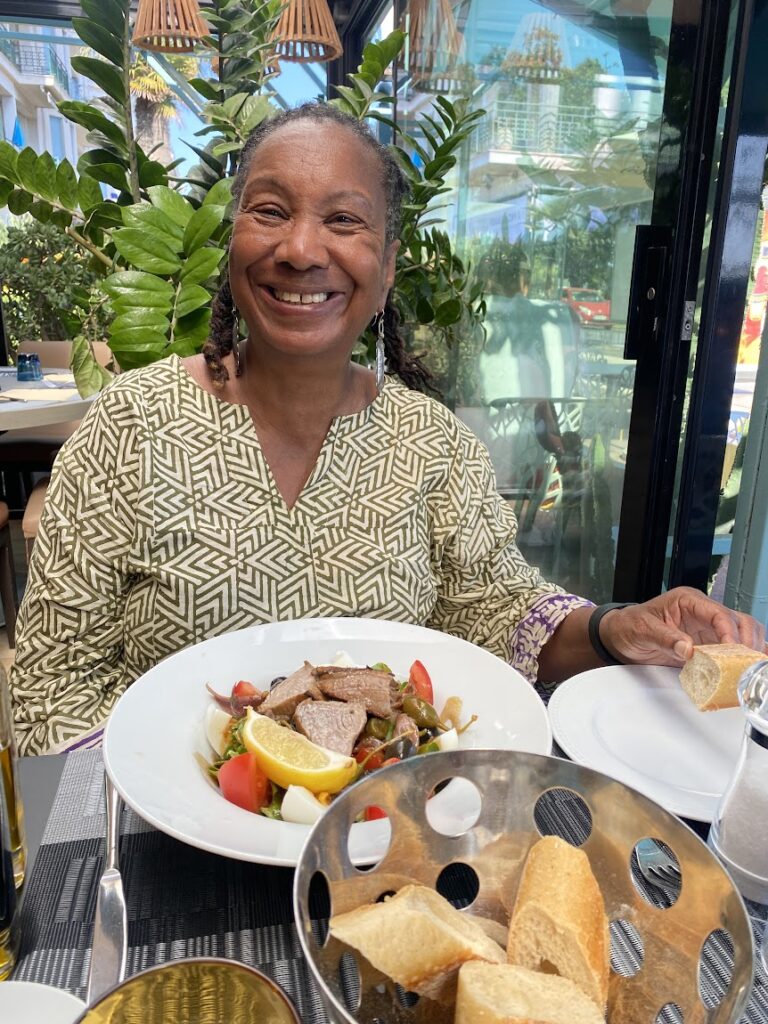
“My mother and Grandmother, who were born in Laurens, South Carolina, moved here in the 1930s along with other family members. My mother attended Dunbar High school and Howard University. I have lived in DC longer than any other place – since 1968 when I came here to attend Howard. We have a strong, continuing family connection to DC.”
What is one special family food tradition, and can you tell us a story about it? Why is it important to your family?
“My favorite family tradition is something we do when we gather for holidays. Once everyone has arrived, just before we serve our plates, we hold hands and someone (usually an elder that is present) says a prayer of thanks for the gathering and our Blessings. Often, if the gathering is during the Thanksgiving holiday, we also go around the circle and name one thing we are thankful for.”
Nelson Johnson

“All holidays are celebrated with food. It’s important who is making the mac n cheese.”
How do you use food for healing?
“I’m looking for healthy food, not fast food. When I was young I ate fast food. But now that I am wise, I know that food is life. I like natural, real food. I eat raw foods, and I fast as well. I am on veggies and no meat.”
Ronald Jackson
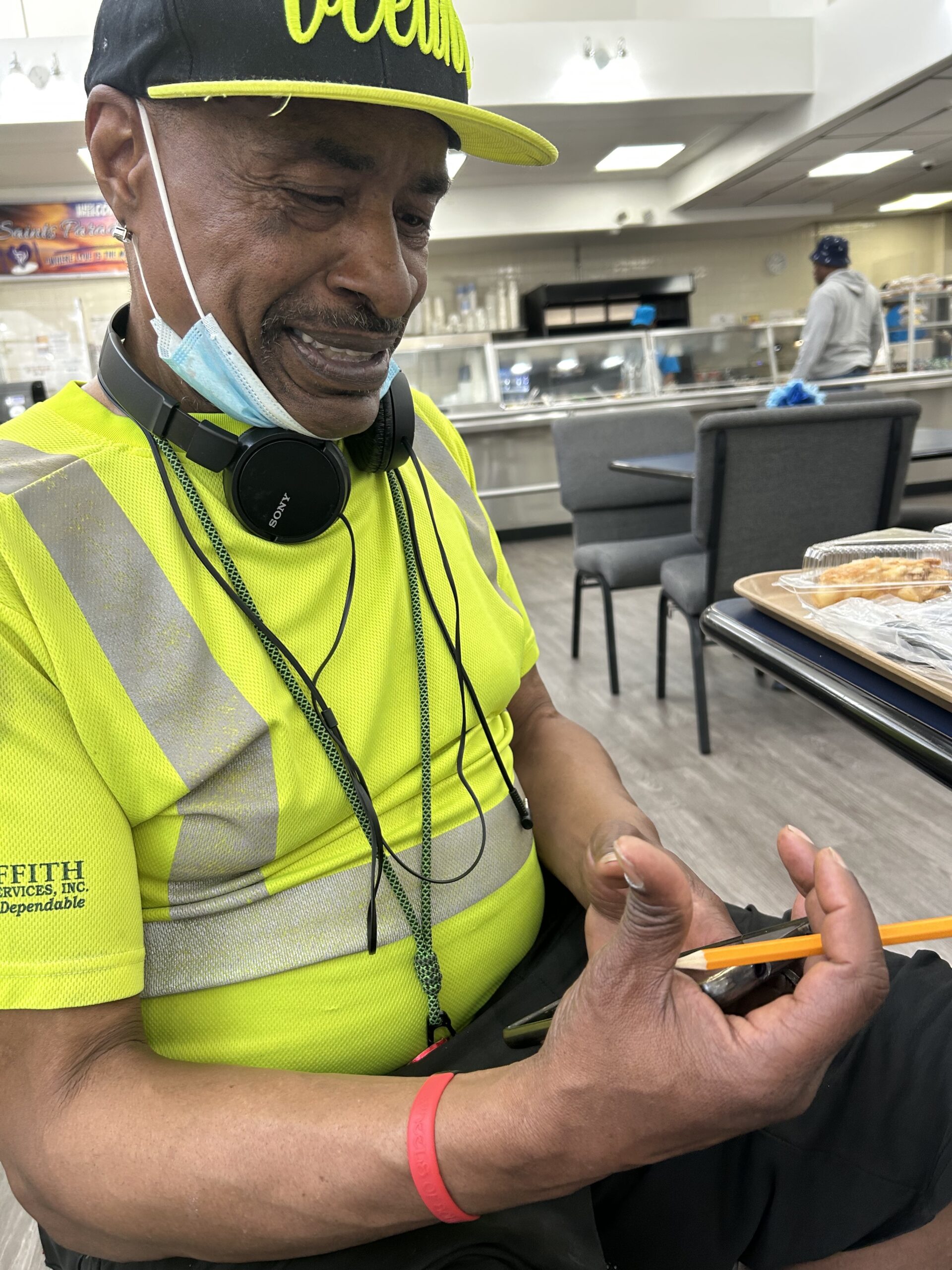
“Stuffing: sausage, shrimp, oysters, onions,”
What is one special family food tradition, and can you tell us a story about it? Why is it important to your family?
“Gloria’s Greens. My mother cooked greens and everybody came for that.”
Tracie Nelson
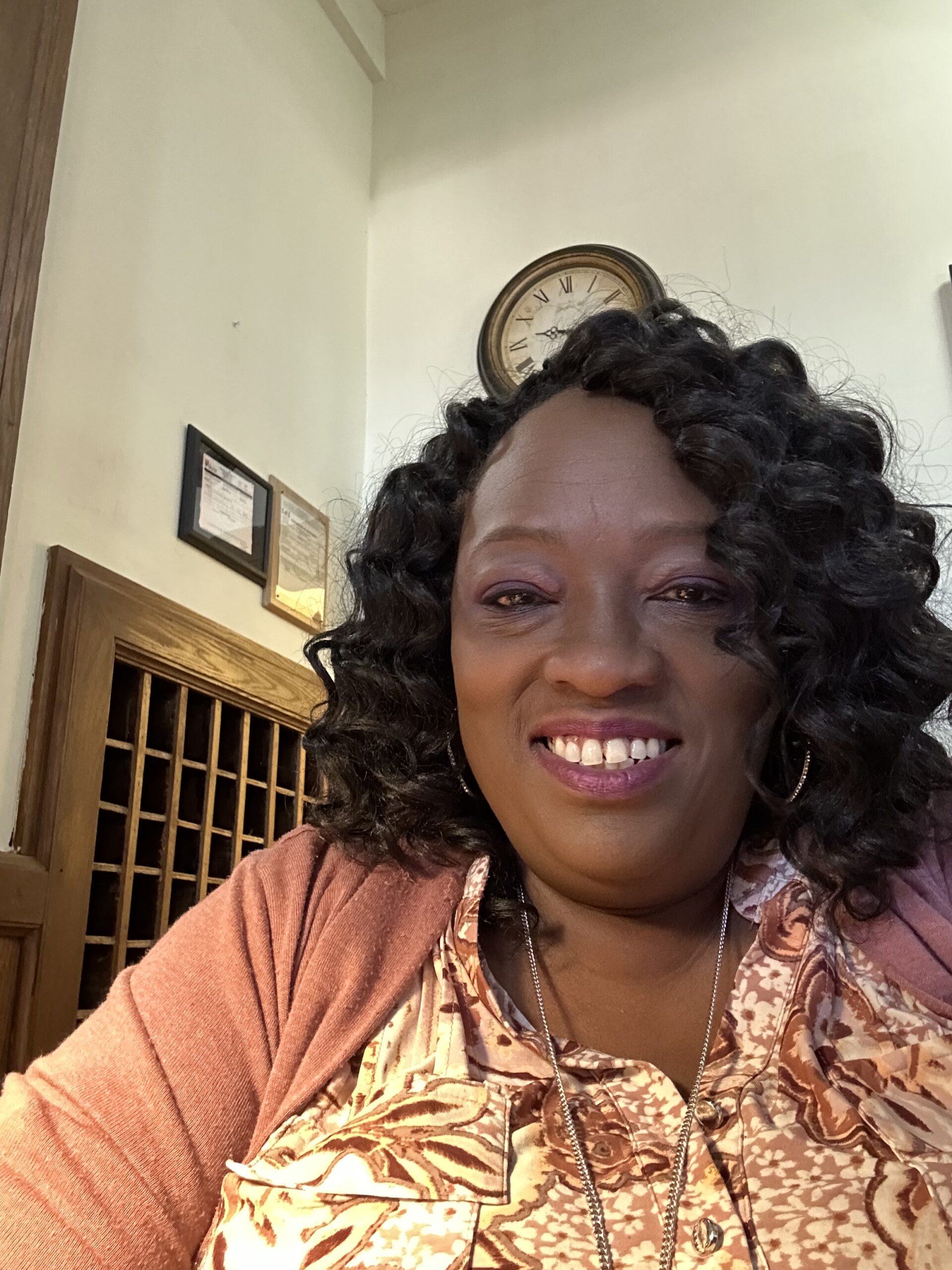
“Cooking a pork pot, making hash and liver pudding.”
How does food connect you with your community?
“I am always cooking and feeding my neighbors and church members.”
Andrea Jeter
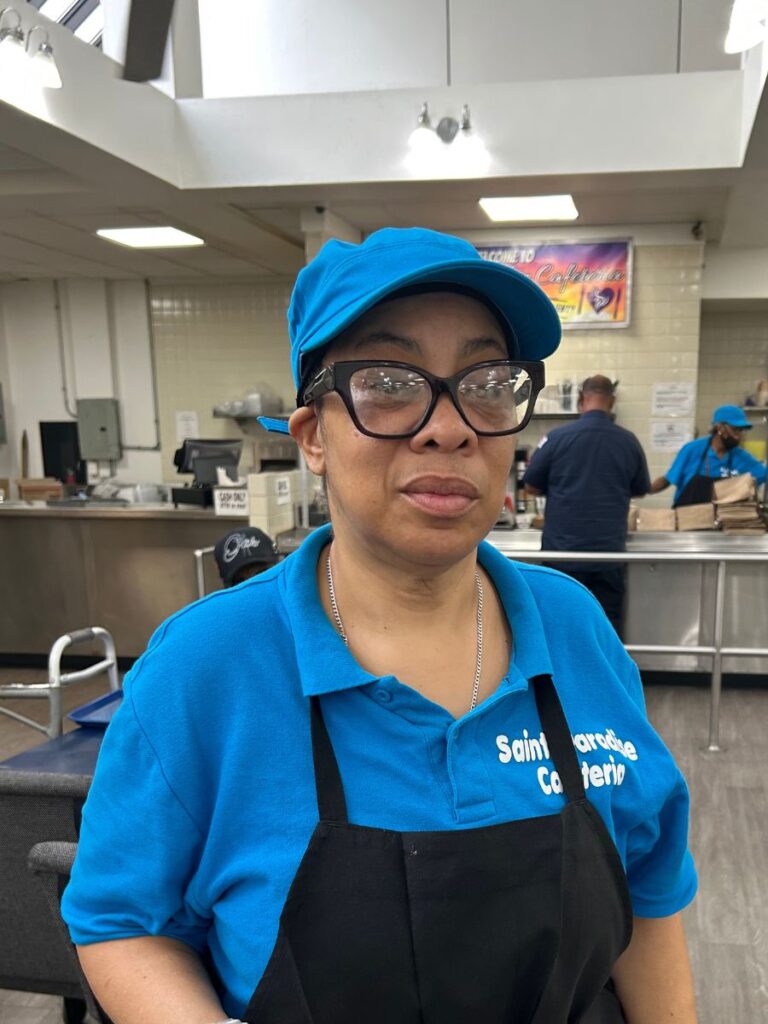
“Remedies like garlic. Garlic helps with blood pressure.”
What is one special family food tradition, and can you tell us a story about it? Why is it important to your family?
“Thanksgiving and we all enjoy the mac n cheese. I am the designated mac n cheese chef for my family.”
Don Garland
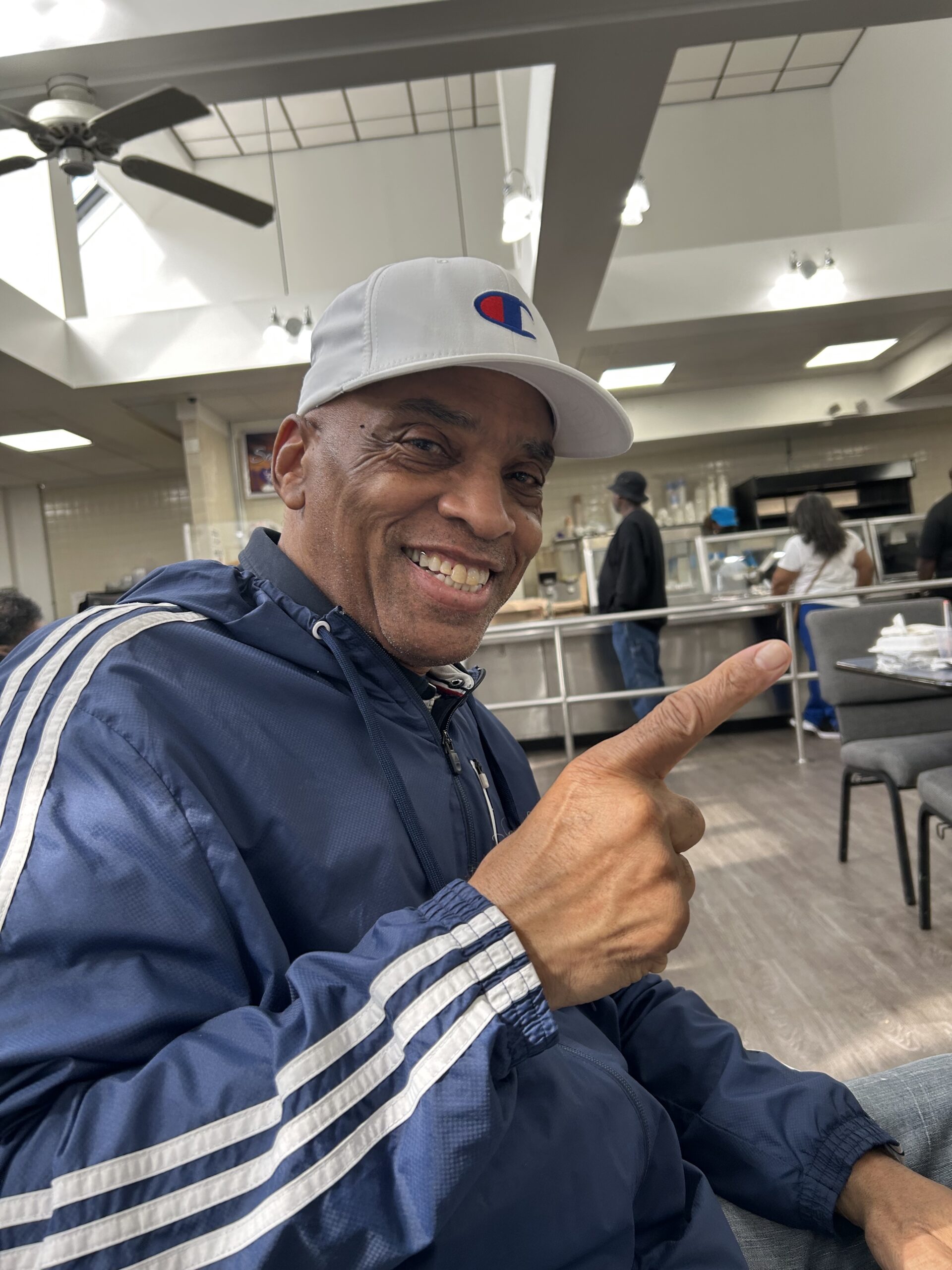
“I support black owned businesses and I like soul food.”
What is one special family food tradition, and can you tell us a story about it? Why is it important to your family?
“Thanksgiving and Christmas and birthday- We celebrate each other. Gifts and food and cake and ice cream. Our forefathers passed down thanksgiving.”
Velgene Eastman
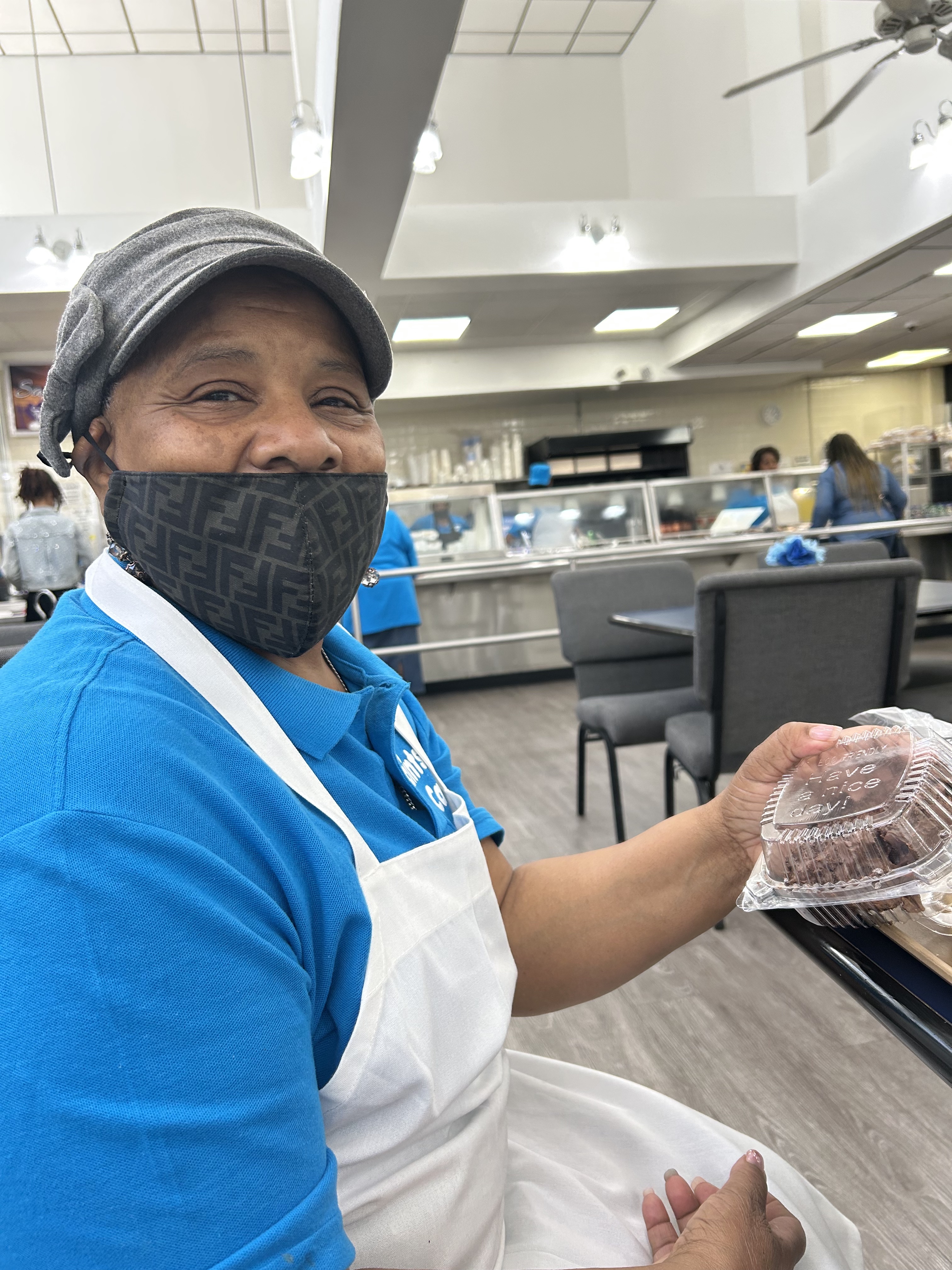
“Food is a part of life. This is my church- we eat together at church.”
Do you have a family recipe you would honor us by sharing? If so, please share it below:
“Sweet potato pie: lemon juice, milk, butter, sweet potato, cinnamon, sugar, crust”
Juanita Witherspoon
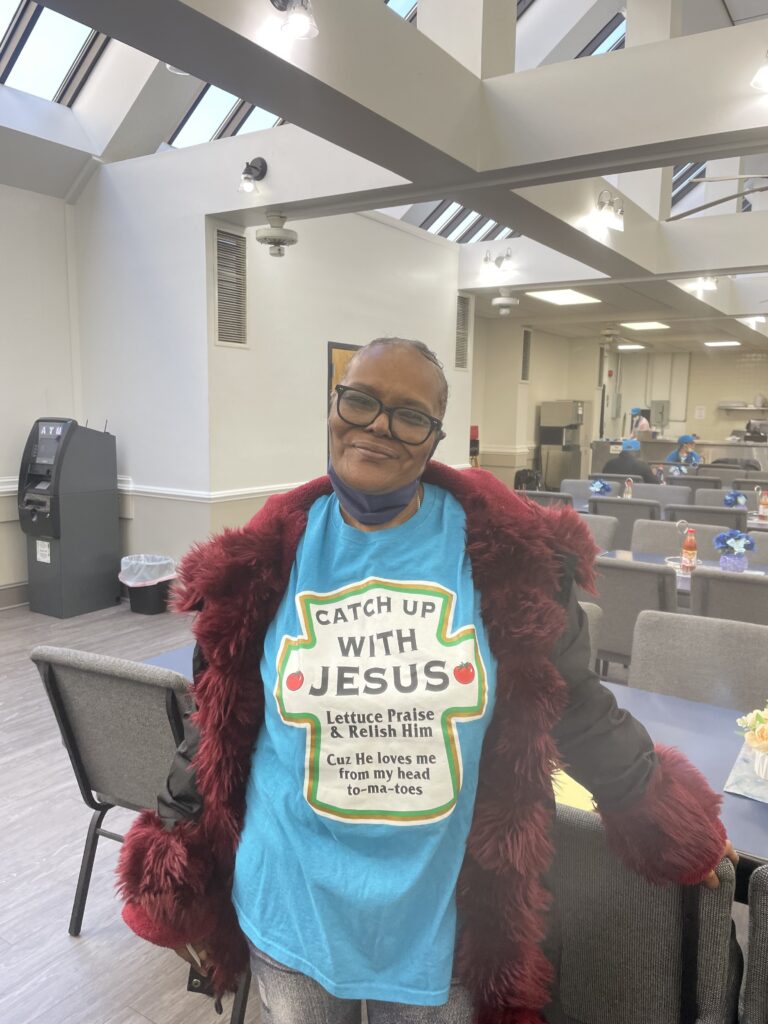
Specialty/Key Words: Washington D.C., Foodways, Church, Religion, Cooking, Tradition, Family, Faith, Resilience, Health, Spirituality, Community Connection, Storytelling, Home Cooking, Legacy
Interview Summary: Juanita Witherspoon was born and raised in Washington, D.C., where she still lives, worships, and raised her family. A longtime member of the church connected to Saints Paradise Cafeteria, she’s been attending for over 58 years and regularly eats there with her husband after services. Juanita values flavor and consistency and sticks to places she trusts. While not a big eater due to recent health issues, food still holds meaning in her life, especially when shared with loved ones. She learned to cook by watching her grandmother and godfather, who cooked for the church and hosted large family dinners. These oral traditions are now passed on to her children, who call her for guidance. Faith is central in Juanita’s life—she prays before meals, eats with her husband, and has written a book, There Is a Blessing in the Storm, about overcoming hardship. Her strength, spirituality, and storytelling reflect her deep connection to both food and community.
Select Audio Clip:
Jennifer Rickerby
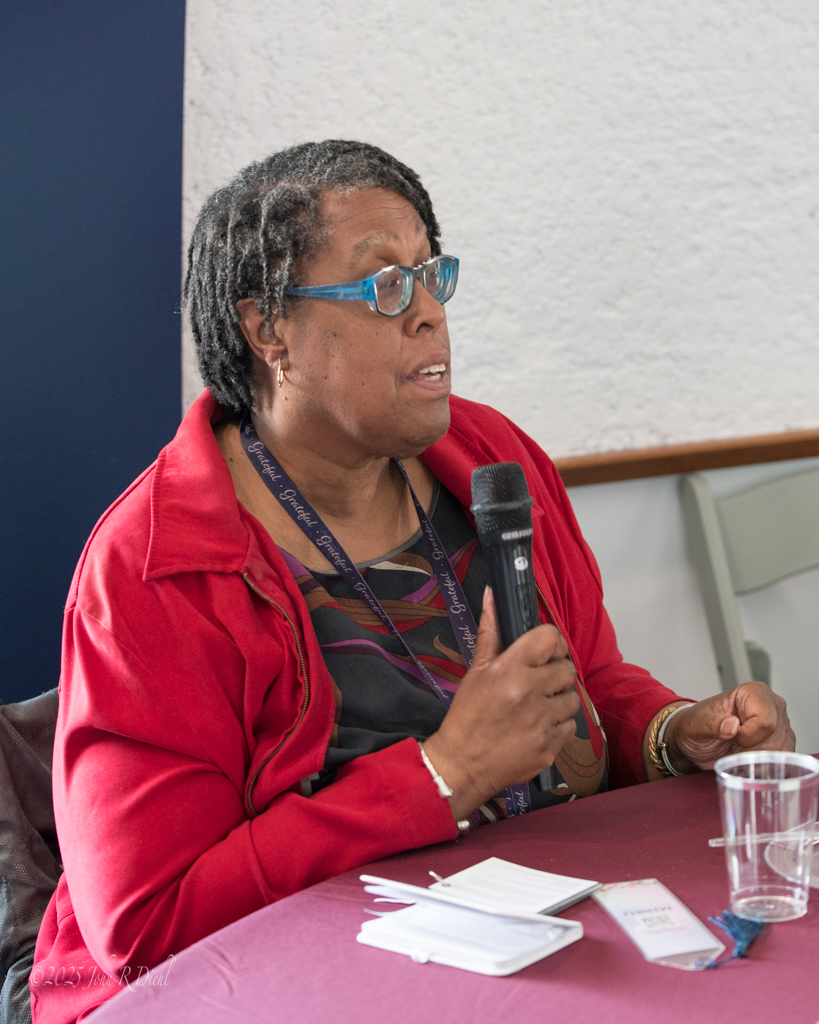
Specialty/Key Words: Washington D.C., Jamaica, Foodways, Cooking, Tradition, Family, Legacy, Storytelling, Community, Holiday Meals, Southern Hospitality, Ancestral Memory, Black Joy, Cooking, Rum Cake, Resilience, Spirituality
Interview Summary: Jennifer Rickerby shared heartfelt memories of learning to cook from her mother, who taught her and her siblings cherished family recipes like curry chicken, oxtail, rice and peas with grated coconut, and rum cake. Cooking was a long process of observation and patience—Jennifer joked that she was “in training for 100 years” before being allowed to pour the flour for her mother’s rum cake. Holidays like Christmas, New Year’s, and Thanksgiving brought visiting family from Jamaica, who would often try to extend their stay thanks to the irresistible food. Everyone bonded over the shared meals. Jennifer reflected on the unity food brought, the joy of those gatherings, and the deep cultural exchange between their Jamaican heritage and American life. She also spoke movingly about her mother’s passing—found with her Bible and rum cake recipe side by side—and expressed gratitude for the memories and lessons passed down through cooking.
Select Audio Clip:
Roland Proctor

Specialty/Key Words: Washington D.C., Community, Food and Memory, Traditions, Family, Cooking, Veterans, Health, Food Scarcity, Resilience, Thanksgiving, Generational Knowledge, Comfort Food
Interview Summary: Roland Proctor was born in Washington, D.C. and raised in Prince George’s County, Maryland. Aside from his time serving in Vietnam, he has lived in the area his entire life. His mother was originally from New York City, and his father from PG County. Roland shared reflections on how food connects people in D.C., especially given the high cost of living and widespread economic need. He emphasized food as a source of comfort and support in the community. While he doesn’t recall specific family recipes, he fondly remembered his mother’s creamed chipped beef and spoke about his own love of cooking. Roland highlighted Thanksgiving as a meaningful family tradition, recalling shared meals that included turkey, ham, cranberry sauce, and corn pudding—a creamy baked dish he particularly enjoys. He selected East Capitol Street as the location to place his interview on the project’s D.C. map.
Select Audio Clip:
Loretta Spears
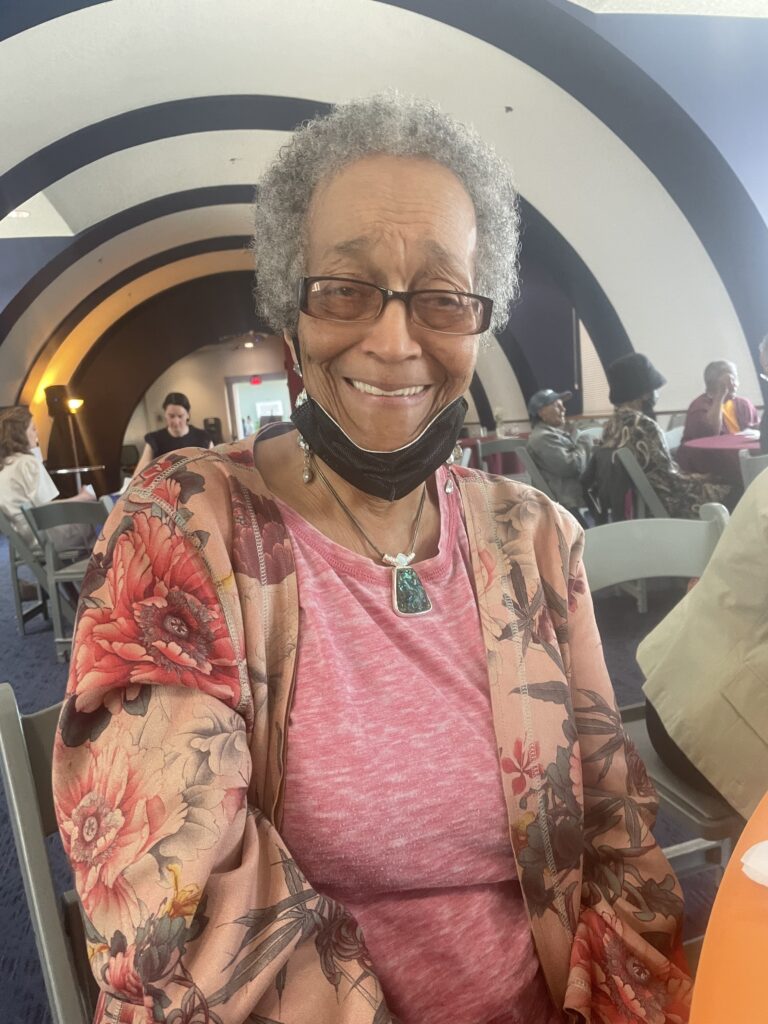
Specialty/Key Words: Washington D.C., Community, Tradition, Family, Storytelling, Legacy, Memory, Resilience, Accountability, Elders, Youth, Support Systems
Interview Summary: Loretta Spears reflected on her upbringing in Washington, D.C., where a strong sense of community—what she called “the village”—defined her childhood. Neighbors looked out for one another, and if a child misbehaved, someone would quickly step in with a firm, “I know your mama.” Loretta described a time when the entire community would come together to support those in need, especially during illness or loss, with each household contributing food. Summertime meant playing outside after dinner, but by 8 o’clock, every child knew to be on their porch. She recalled how older residents watched over the children, offering guidance with just a few words. Loretta shared a personal story about standing up for herself as a light-skinned Black child facing bullying, and how her mother supported her right to self-defense, while still discouraging violence. She expressed a longing for the values of mutual care, accountability, and “tough love” to return, emphasizing how vital they are for today’s youth and community well-being.
“When I was coming up we always had to have dinner at 5 o’clock. Home, homework finished, and if you didn’t have time to finish your homework you couldn’t have dessert until you finished your homework. Butt better be on the porch or in the house.”
How does food connect you with your community?
“When I was growing up, the ladies cooked dinner everyday, shopped Friday and cooked all weekend. If anyone was sick they made sure those people ate. And if people couldn’t get out someone would go to the store for them. Everyone was taken care of, it was always a community thing. Even though we had corner stores we would go far for the big stores and we would all make sure people were taken care of.”
Select Audio Clip:
Margaret Weusi

Specialty/Key Words: Washington D.C., Family, Memory, Storytelling, Tradition, Legacy, Resilience, Intergenerational Experience, Self-Sufficiency, Community, Trinidad and Tobago
Interview Summary: Margaret Weusi, originally from Trinidad and Tobago, shares how food has always been a central part of her life, growing up in a large family of 13 siblings where nothing went to waste. Upon moving to the U.S., she found it unusual to see leftovers and had to adapt by recreating Caribbean dishes with available ingredients. Her family gatherings are lively events filled with traditional foods like Pelau, music, and storytelling, which help preserve their cultural heritage. These gatherings also educate younger generations about their roots and foster community through shared meals.
Audio Clip:
Group Interview: Velgene Eastman, Ora Roberts, Kimberly Smith, and Janice Barnes
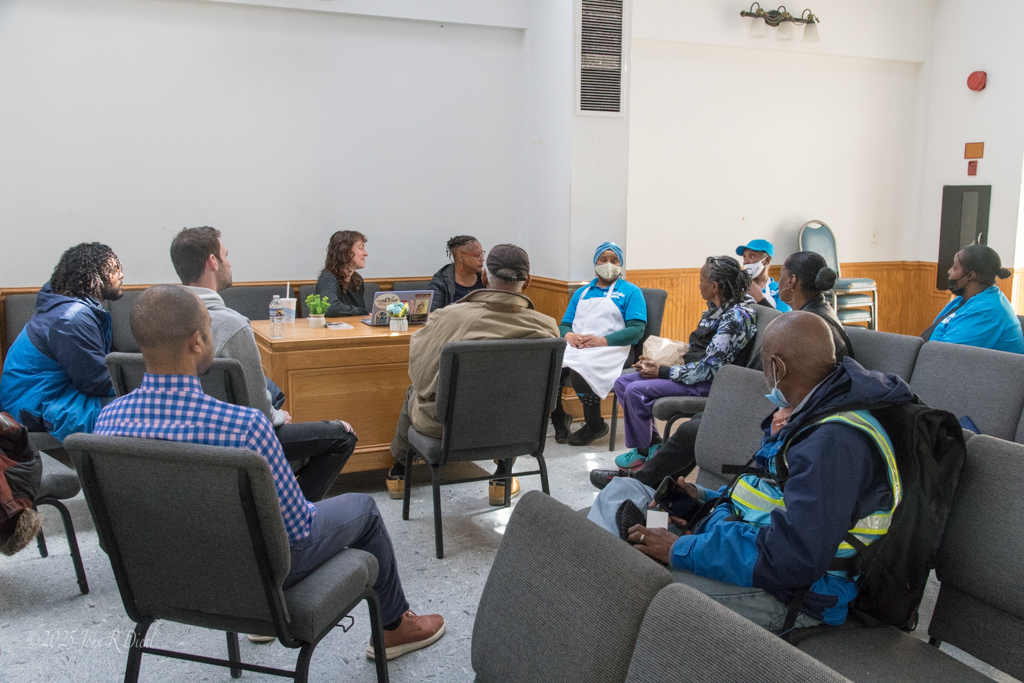
Specialty/Key Words: Washington D.C., United House of Prayer, Community, Faith, Fellowship, Tradition, Cultural Food, Healing, Black Joy, High Blood Pressure, Mediterranean Diet, Accessibility, Memory, Family, Resilience, Legacy, Storytelling, Intergenerational Knowledge, Spirituality, Food Justice, Self-Sufficiency, Gardening, Heritage, Neighborhood, Cookout, Adaptation, Gender
Interview Summary: This group interview with Velgene Eastman, Ora Roberts, Kimberly Smith, and Janice Barnes took place at the United House of Prayer in Washington, DC. The conversation centered around the significance of food in Black communities, particularly its role in spiritual grounding, cultural preservation, and family connection. The women reflected on the joyful reactions of patrons experiencing traditional dishes like macaroni and cheese and yams, highlighting how the church kitchen serves as a community hub welcoming people from all backgrounds. They discussed the legacy of “Daddy Grace,” founder of the United House of Prayer, and how food and fellowship are deeply embedded in the faith. Janice Barnes shared how dietary changes such as adopting a Mediterranean diet improved her health, though she noted the financial and logistical challenges of eating fresh, healthy food. The group also touched on topics of food-based healing, dietary modifications within cultural cooking, and the memory and legacy tied to family recipes. Reflections on gardening, changing food accessibility, and teaching the next generation to cook emphasized food’s evolving role in community resilience. The interview concluded with personal stories of neighborhood fish fries, backyard cookouts, and how cooking traditions—particularly among elders—continue to shape identity, memory, and togetherness.
Audio Clip:
Akua Kouyate-Tate
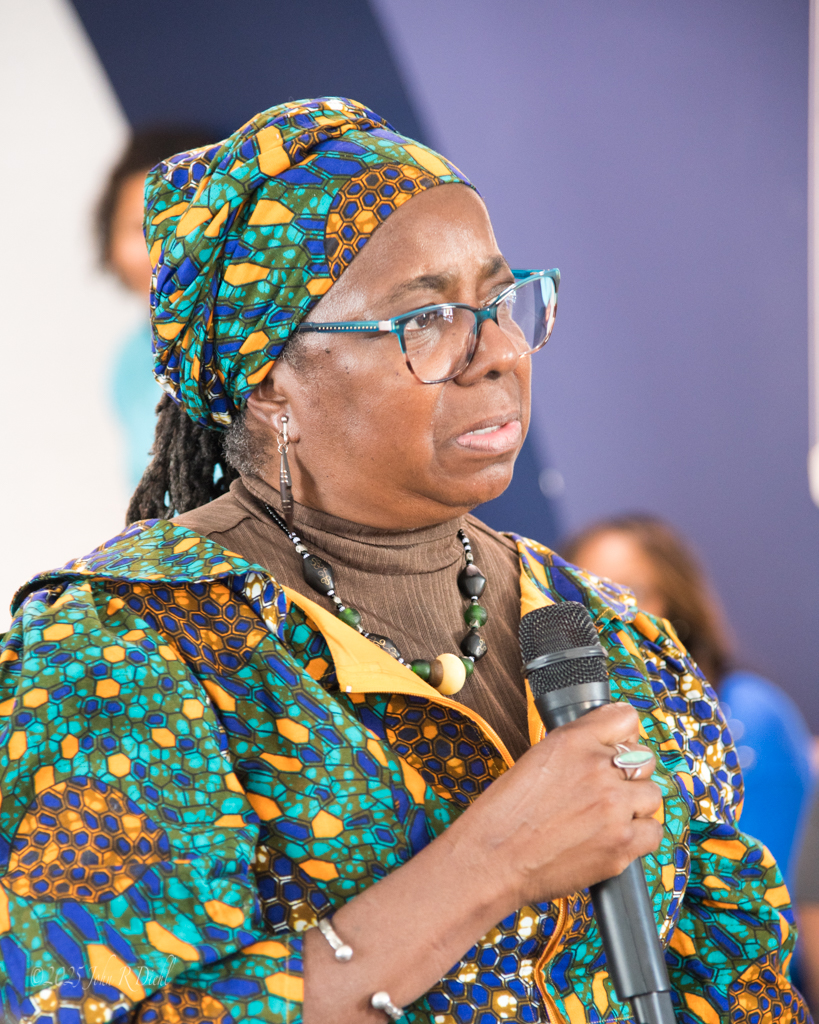
“My family lived for 72 years in the area of DC known as Capitol Hill.”
How does food connect you with your community?
“Food as always been a communal experience for our family, extended family, friends and community. Food is a ritual for gathering together as well as welcoming visitors into our family and community circle. From weekly down home South Carolina style Sunday meal –a combination of breakfast and dinner-, to the annual holidays
and holy days Thanksgiving Day, Christian, Islamic and other spiritual celebrations. And as our spiritual practices and family expanded, South Carolina and Senegalese cuisine were staple meals, which meant that rice was in our culinary DNA.”
Robert Harris
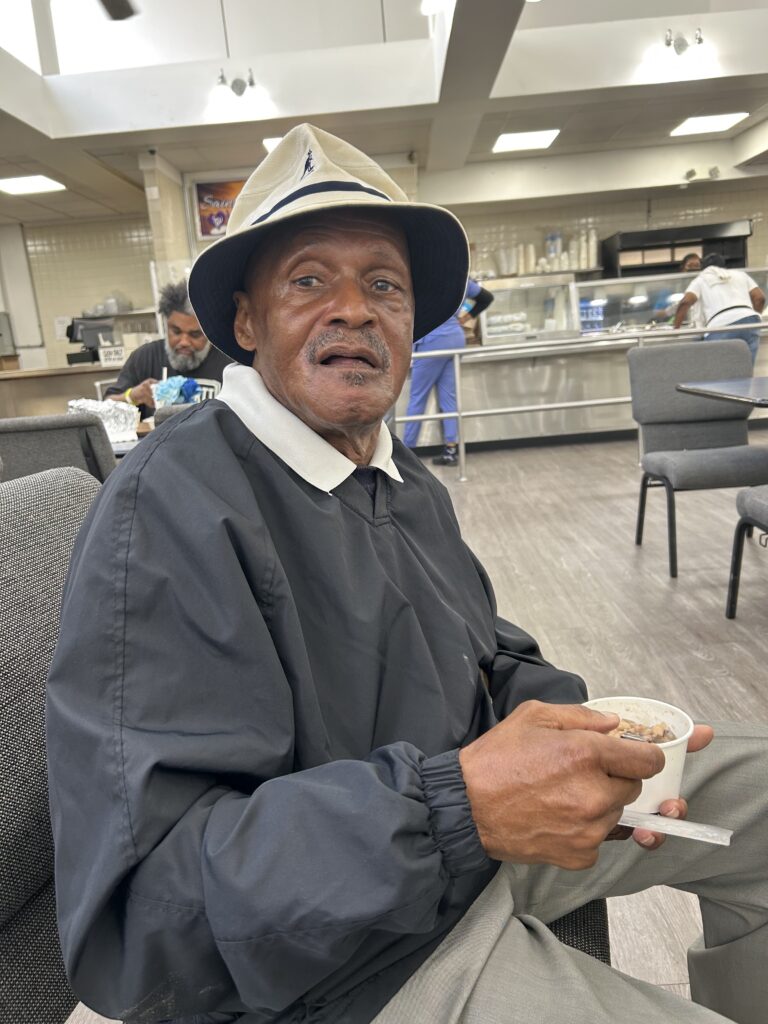
“Take the wrinkle out your belly. I dont eat too much meat so I am strong at 80.”
How does food connect you with your community?
“Im a soul man. When I grew up, I had two pieces of bacon, one egg and grits. sometimes rice. Some mornings- one piece of sausage, one egg. In evening, we had beans six days a week. No meat. Black eyed peas, lima, pinto, Great northern. On Saturdays we had pork n beans and hotdogs. On Sundays we had chicken. My daddy didnt believe in too much meat. My daddy would buy the chicken, and my mom would kill it and cook it. The process was communal.”
Kimberly Smith
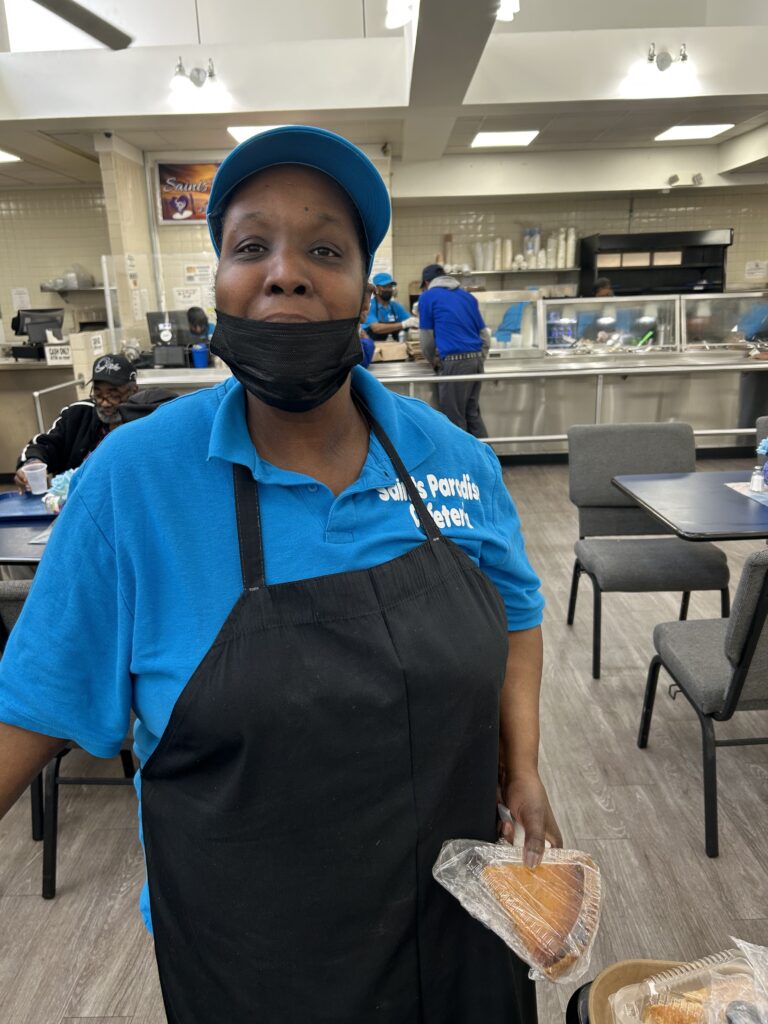
“Opportunity to gather with community members.”
What is one special family food tradition, and can you tell us a story about it? Why is it important to your family?
“Thanksgiving – we always had mac n cheese. Potato salad, greens, chitlins, pig feet. We all came together and ate food we aint supposed to have.”
Chrischeryl McDaniel
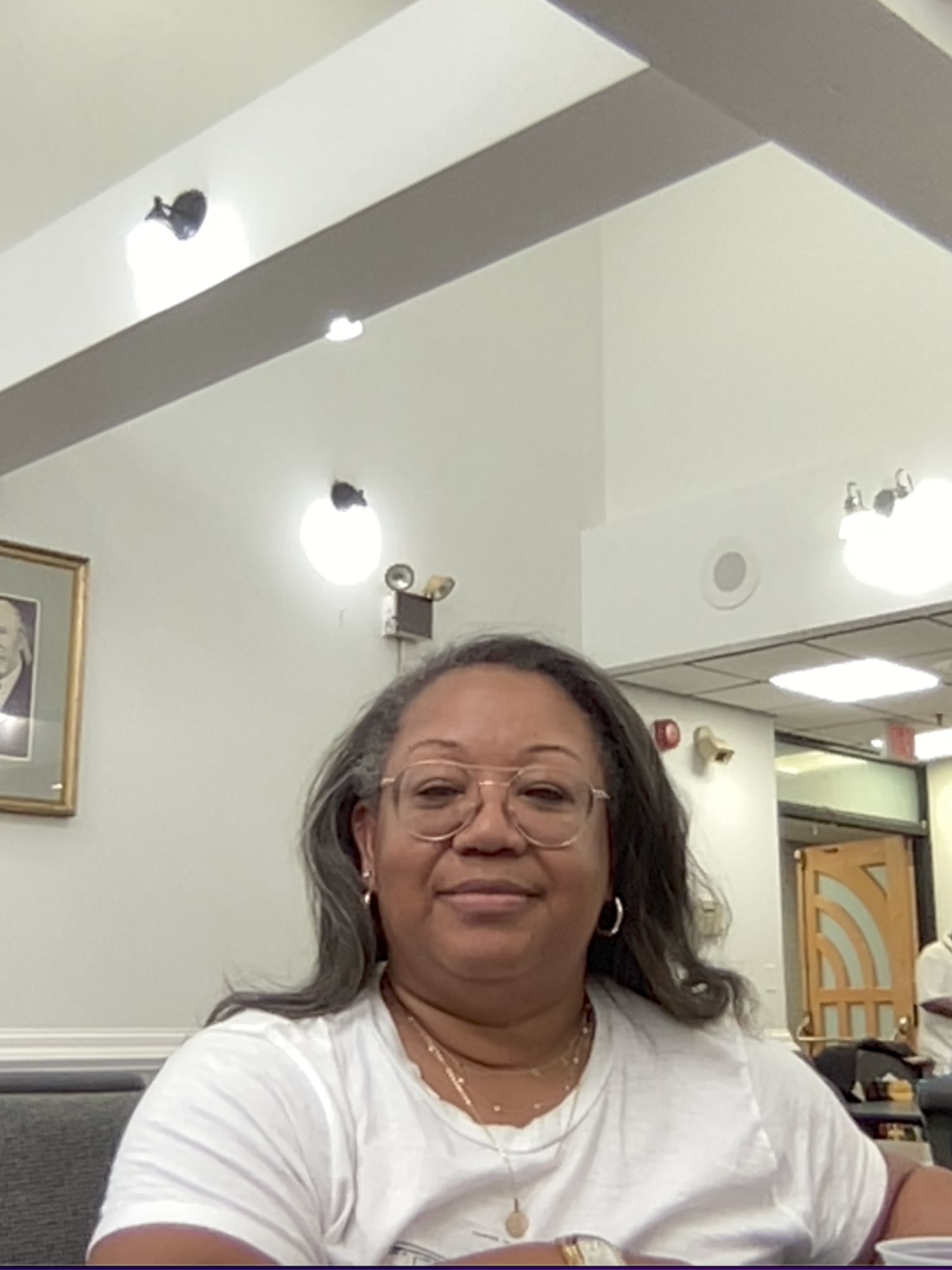
“Taking food to someone when their healing. Help someone overcome a sickness.”
What is one special family food tradition, and can you tell us a story about it? Why is it important to your family?
“Thanksgiving – for the last 25 years, we hosted thanksgiving for both sides of the family. We take a photo on the stair case. five generations on the staircase.”
Diane Randall
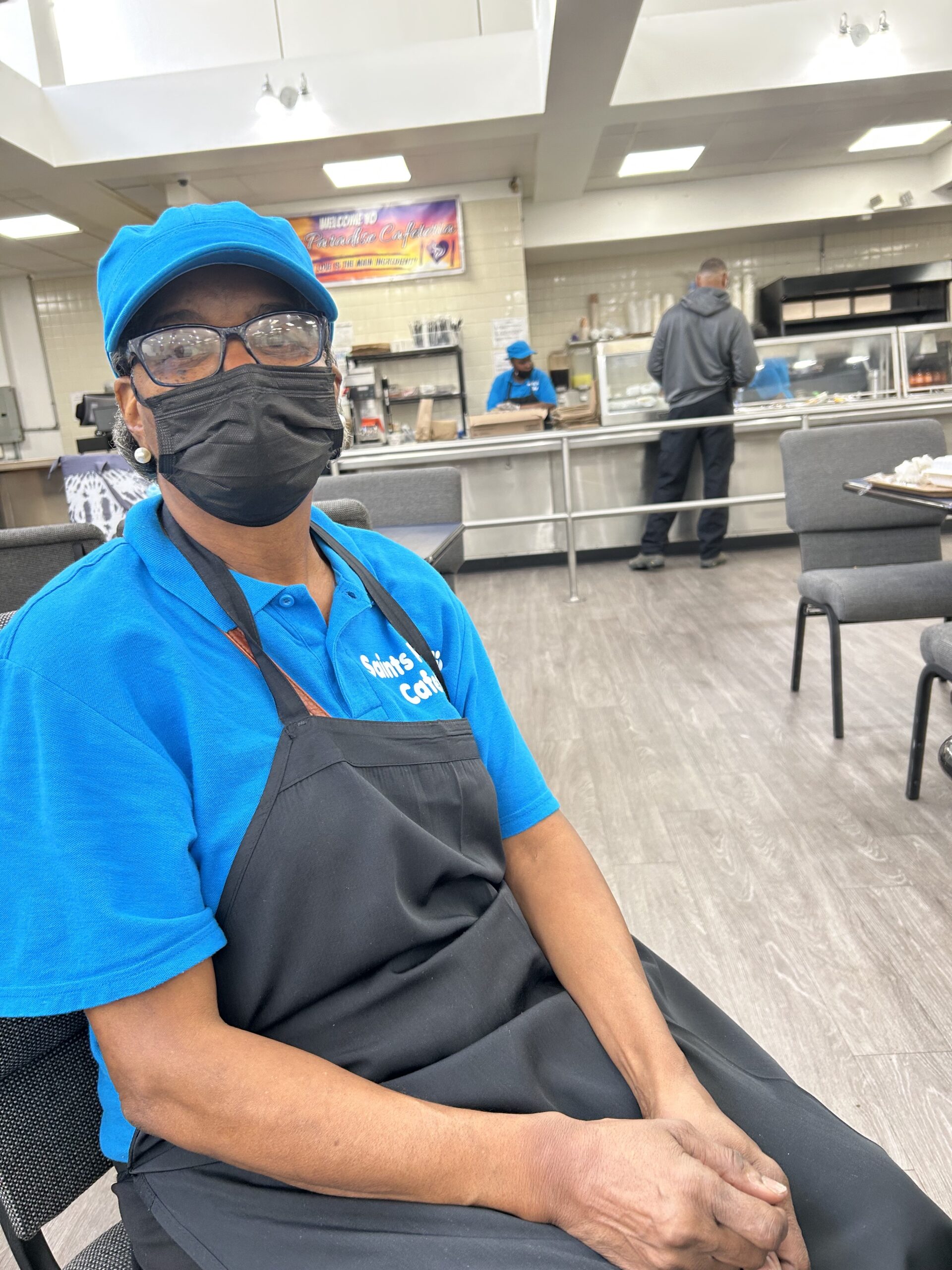
“I serve the same food I was raised on. I bless my community with the same food I was blessed with. I learned from my mom.”
What is one special family food tradition, and can you tell us a story about it? Why is it important to your family?
“Chicken connects my family. We would go to Alabama as a family and eat fried chicken. We would have a fresh chicken, boil it, and eat it as a family.”
Angela Anderson
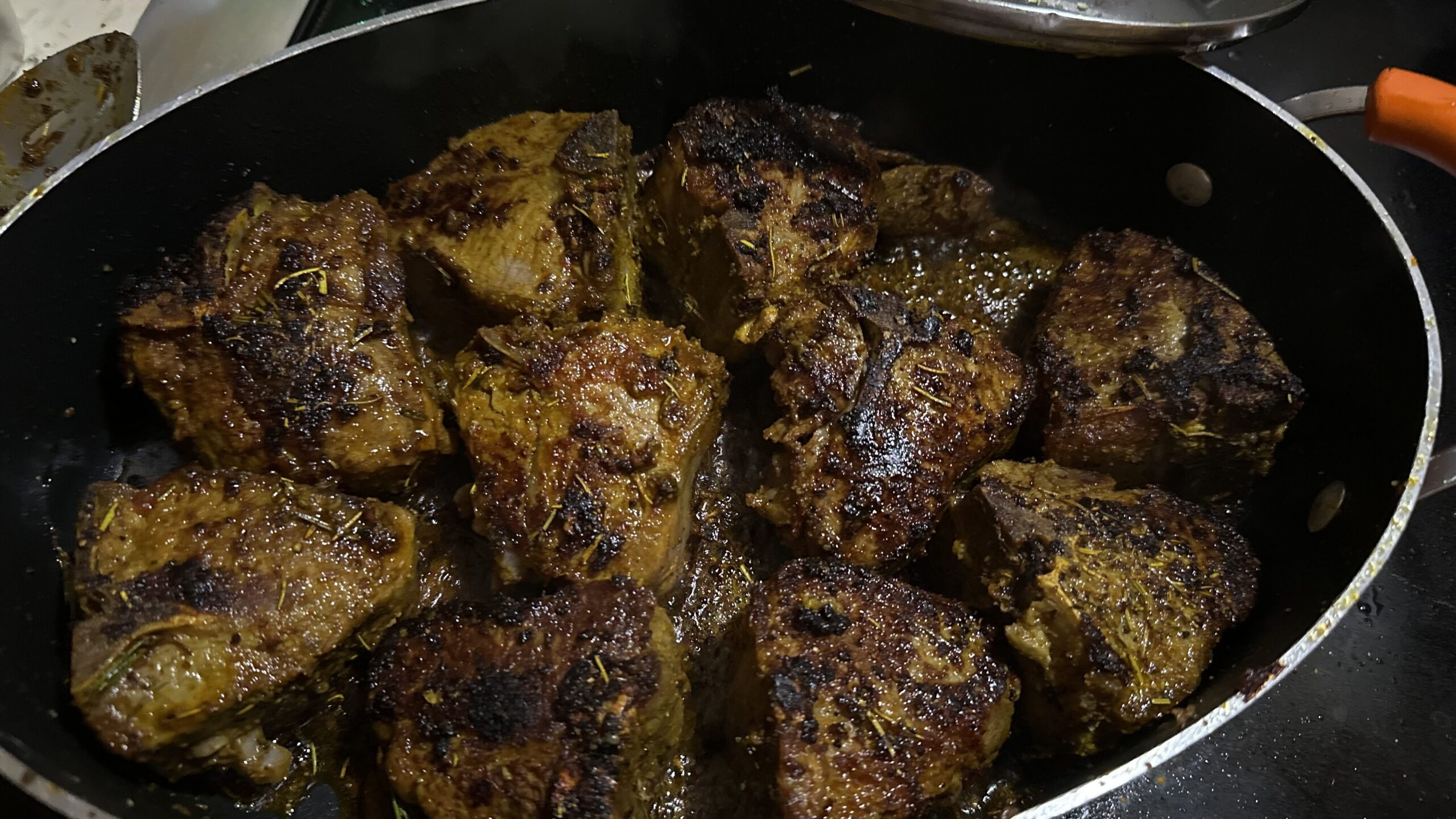
“The kitchen is a safe place for my family. The kitchen is the place where I provide nourishment, healing, counseling, help with homework, and the central hub or meeting place for our family.”
How do you use food for healing?
“I use food for by ensuring it’s nutritious. I cook 5 sometimes 6 times a week. This ensures I know what my family is putting in their bodies. I truly believe we are what we eat. I stress the importance of variety, eating the rainbow and trying new foods from different cultures. I know ginger, turmeric, honey, cinnamon, mint, and many other herbs and spices have medicinal properties. Especially as a daughter of an immigrant where my palate is used to flavor and spice. We must train our children to understand healthy means tasty too. We also must find a way to push the idea of food and community. It shouldn’t cost more to eat healthy. As a community, we should learn to grow, cultivate and share our knowledge of healthy eating and goods to be fruitful together.”
Sheila Jones
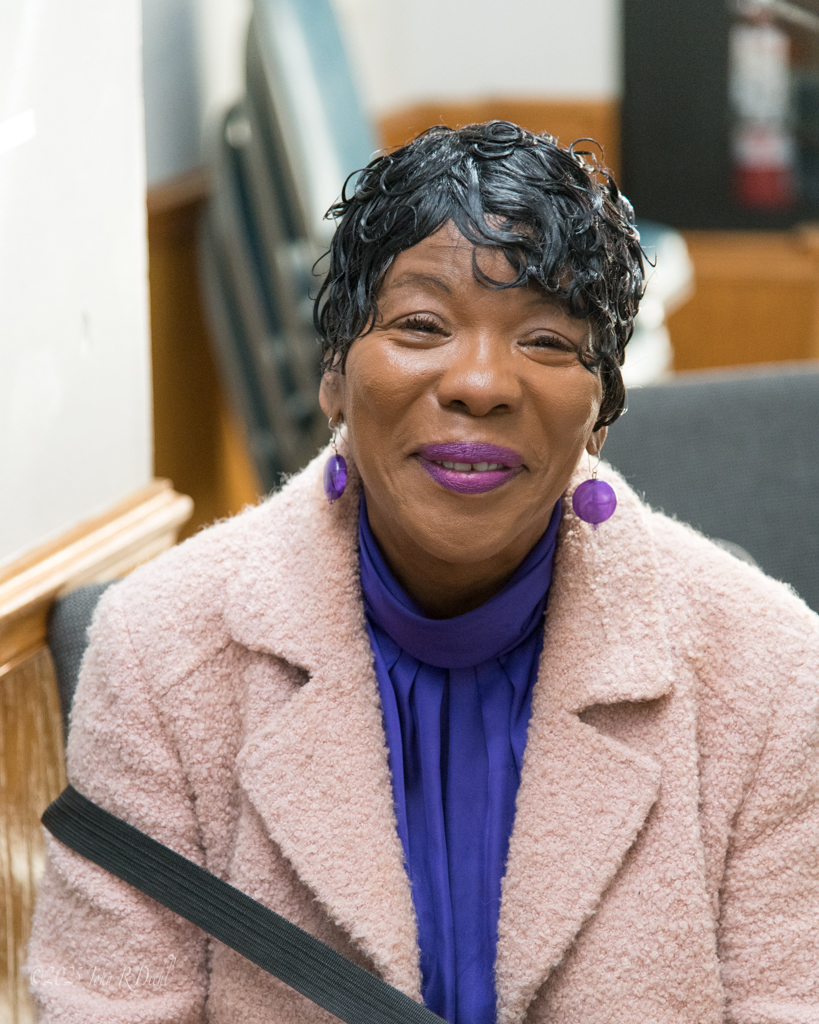
Specialty/Key Words: Washington D.C. Foodways, Community, Legacy, Food and Memory, Traditions, Family, Health, Healing, Resilience, Public Housing, Migration, Culture, Generational Knowledge, Cooking, Military, Physical Wellness
Interview Summary: Born and raised in Washington, D.C., Sheila Louis Jones is a lifelong resident whose family moved from Virginia nearly 70 years ago when her father was stationed at Andrews Air Force Base. Sheila spoke about growing up in Capitol Hill and later in public housing, where she said she learned a lot and had fun forming strong community bonds through sports and social activities. The interview took place at Saints Paradise Church in DC where Sheila discussed the importance of food in her community, including programs like Produce Plus and the role they play in connection and nourishment. She also shared memories of her mother’s homemade banana pudding and stories of her husband, a military cook, who loved preparing meals. Sheila described how food is part of her healing journey, including her current participation in a green-food cleanse inspired by the members of her dance community.
Select Audio Clip:
Sunithi Selvaraj
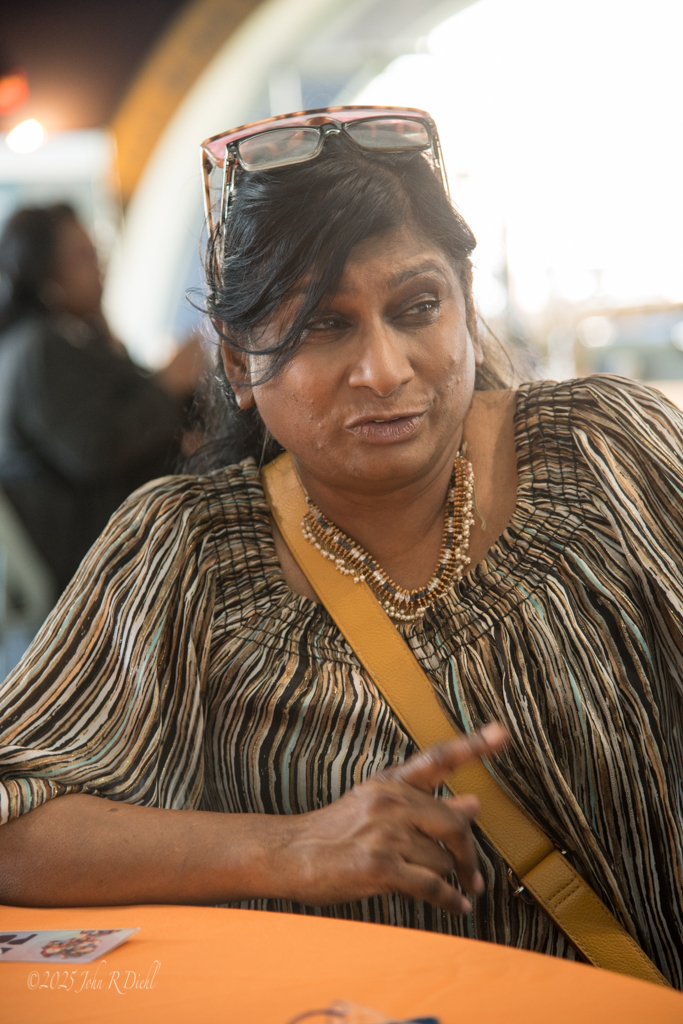
Specialty/Key Words: Washington D.C., Nutrition, Health, Healing, Community, Education, Gardening, Cooking, Engagement, Support Systems, Tradition, Legacy, Resilience, Wellness, Intergenerational Exchange
Interview Summary: Sunithi Selvaraj, affectionately known as Sue, is a registered dietitian and nutritionist who began working with Model Cities in April 2023. Originally a consultant, she quickly fell in love with the vibrant senior community and transitioned into a full-time role as their nutrition educator. Sue leads weekly programs that include cooking demonstrations—often taught by the seniors themselves—along with gardening projects, field trips, and educational sessions. Tuesdays are hands-on and interactive, featuring activities like fruit kimchi-making and seed planting in their community garden, while Thursdays focus on nutrition topics chosen by the participants. Sue shared how deeply engaged the seniors are, even requesting complex topics such as how to lower arsenic in rice, which she actively researches to bring back to class. With classes reaching up to 45 participants, she describes it as “no standing room.” Sue expressed joy and gratitude for being part of a community where teaching, learning, and mutual respect flourish daily.
Select Audio Clip:
Glen Pittman
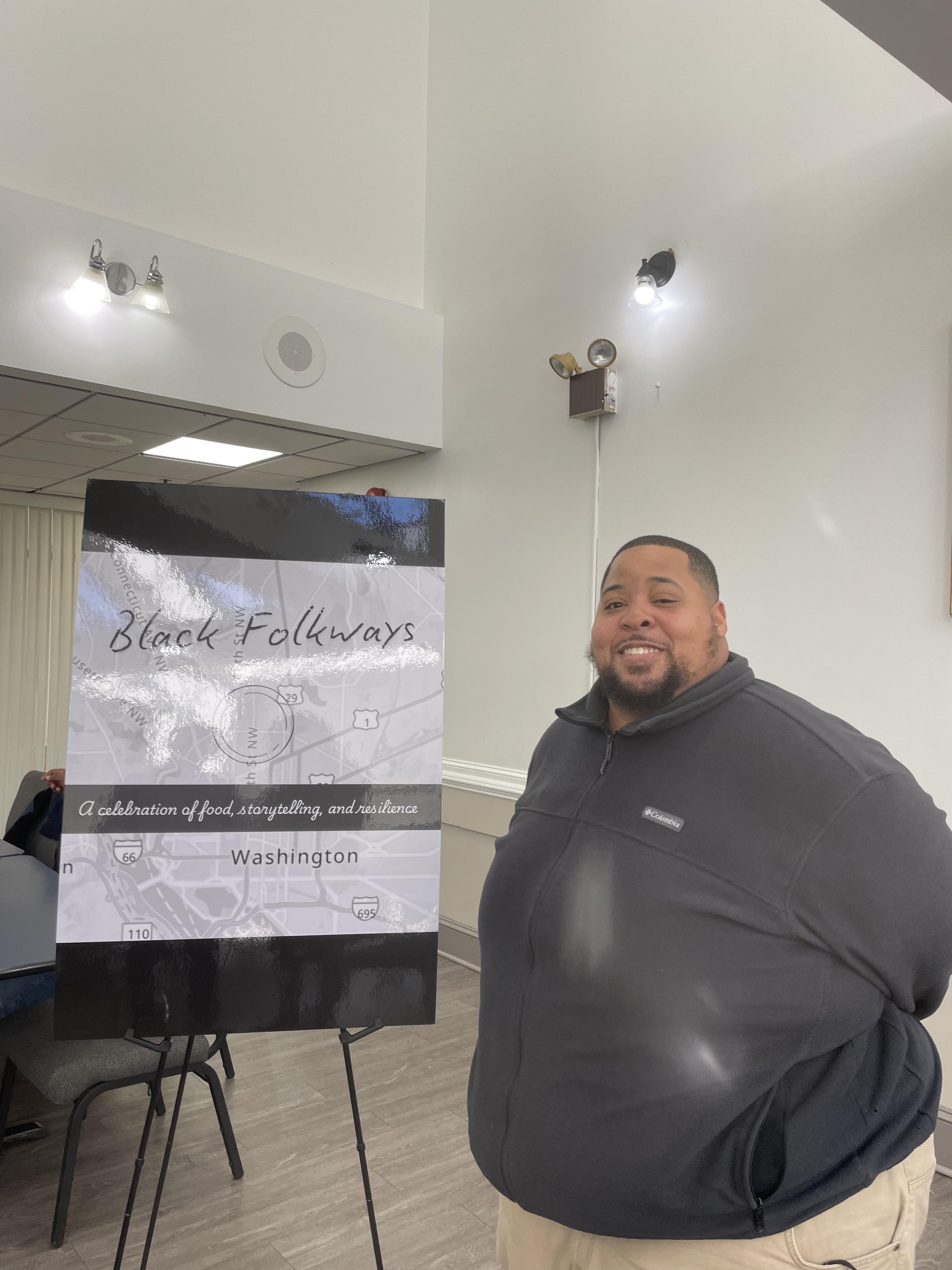
Specialty/Key Words: Washington D.C., Foodways, Healing, Food Industry, Black Food Culture, Family, Holidays, Grilling, Remedies, Tradition, Community, Work and Food, Resilience, Heritage
Interview Summary: Glen Pittman was born and raised in Virginia and currently works in Washington, D.C., commuting daily from Fredericksburg. He has worked as a Food and Beverage Director at the Holiday Inn in NW DC for over two years. Though his physical home is in Virginia, D.C. plays a central role in his daily life and professional identity. Glen spoke about the importance of food in the Black community as a unifier and a cultural anchor. He emphasized how different styles and staple dishes help foster a shared sense of belonging. Holidays like Thanksgiving and Christmas were significant in his household. His mother and older sisters were the primary cooks growing up, and as he got older, he and his siblings took on more responsibility in the kitchen. Grilling has become Glen’s personal specialty and a tradition he’s proud to continue. He also discussed the use of food and herbs for healing—specifically home remedies passed down through his family. Glen uses cloves for toothaches and turmeric when feeling ill, citing the value of old folk knowledge in everyday wellness.
Select Audio Clip:
Mary Dash
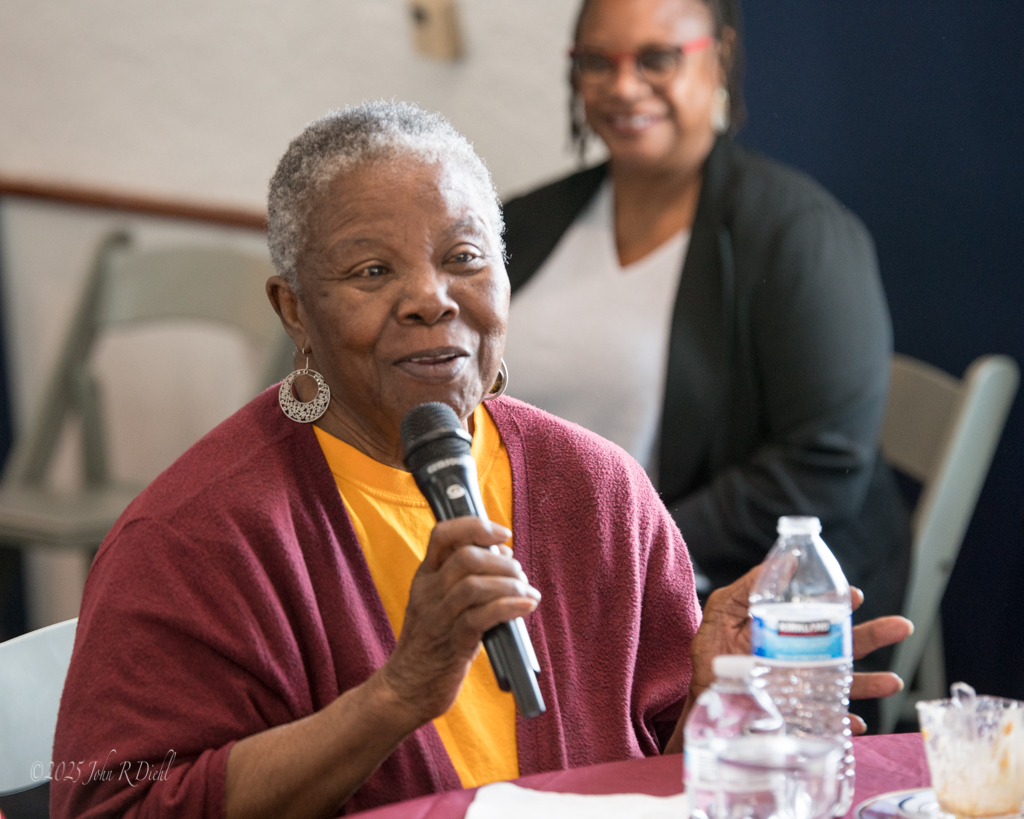
Specialty/Key Words: Washington D.C., South Carolina, Fishing, Home Cooking, Tradition, Family, Storytelling, Community, Black Joy, Resilience, Nature, Memory, Support Systems, Fellowship, Gratitude
Interview Summary: Mary Dash shared joyful memories of fishing trips in South Carolina, recounting a childhood moment when her fear of crossing a log over a pond led her mother to come back and help her. That day ended with her catching about six fish—mainly catfish and croakers. She also remembered another special day when a woman her mother worked for let her fish in a private pond, where she caught a dozen catfish. Mary described the satisfaction of cleaning and cooking her catch, calling it one of the happiest days of her life. Now older, she expressed her hope to go on another fishing trip soon and praised Ms. Mack, the Model Cities center director, for her support and warmth. Mary also celebrated Sue, the Model Cities instructor for their nutrition class, for her dedication, humor, and patience—even when the participants visit her office a little too often. Mary’s story reflected gratitude, connection, and the comfort of returning to spaces and people that feel like home.
Select Audio Clip:
Carlton Tucker
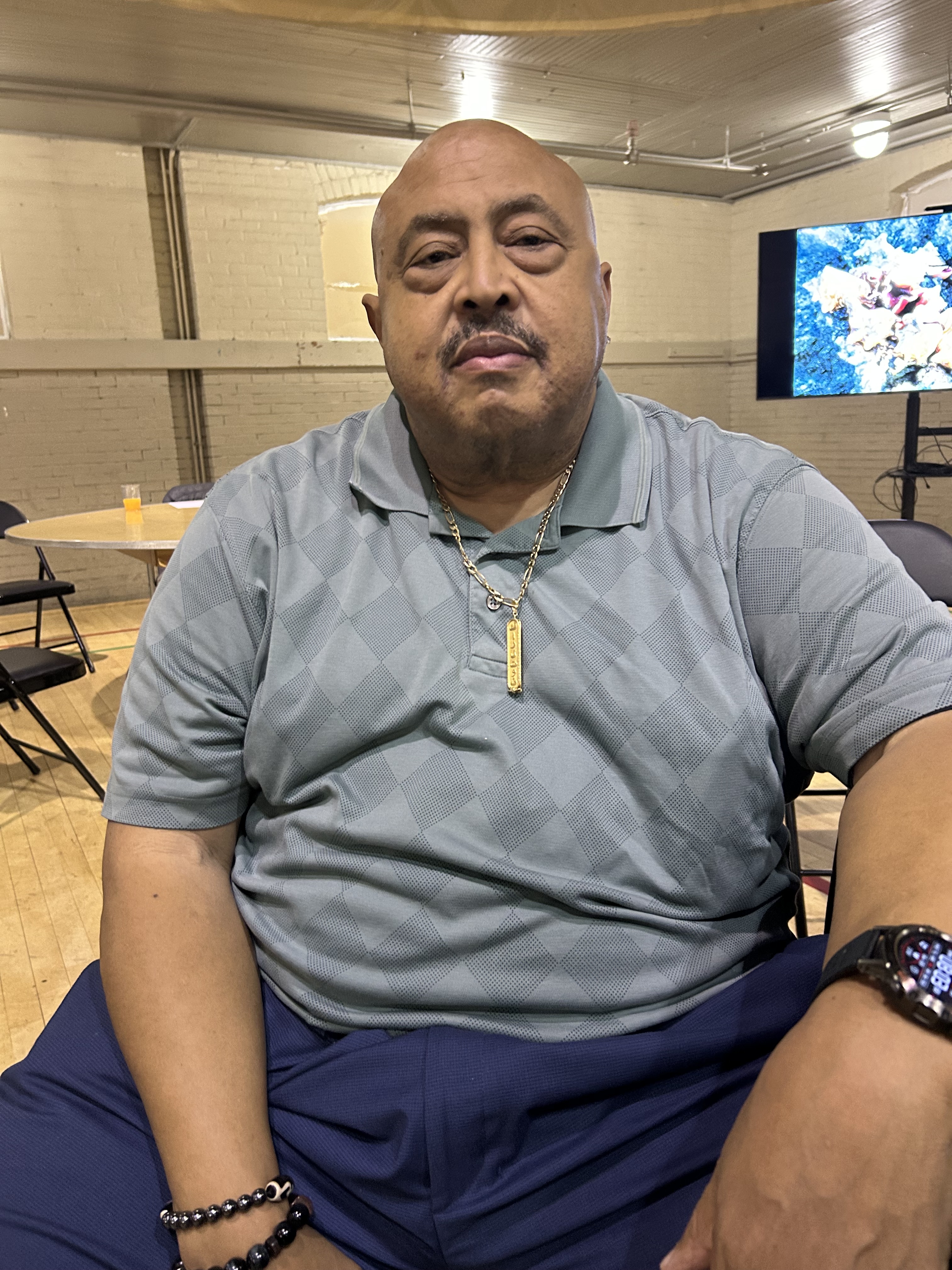
Specialty/Key Words: Washington D.C., Family, Memory, Storytelling, Tradition, Labor, Nature, Legacy, Resilience, Farming, Intergenerational Experience
Interview Summary: Carlton Tucker shared vivid memories of his childhood, shaped by the foods he was surrounded by and the labor that came with them. He humorously recalled refusing to eat tomatoes, and how his grandfather owned a mango grove where he and his cousin were made to climb trees to pick the fruit. That experience left a lasting impression—so much so that he still won’t touch a mango today. He described how, after picking, they had to bathe in turpentine and scrub with old bars of lye soap to remove the sticky sap, or “gum,” from their skin. Through his storytelling, Carlton highlighted how deeply food memories are tied not just to taste, but to work, family, and childhood experiences that linger long after the moment passes.
Audio Clip:
Group Interview: Tim Hall, Luke Blackwell, James Birth, Phyllis Metts, Janice Barnes
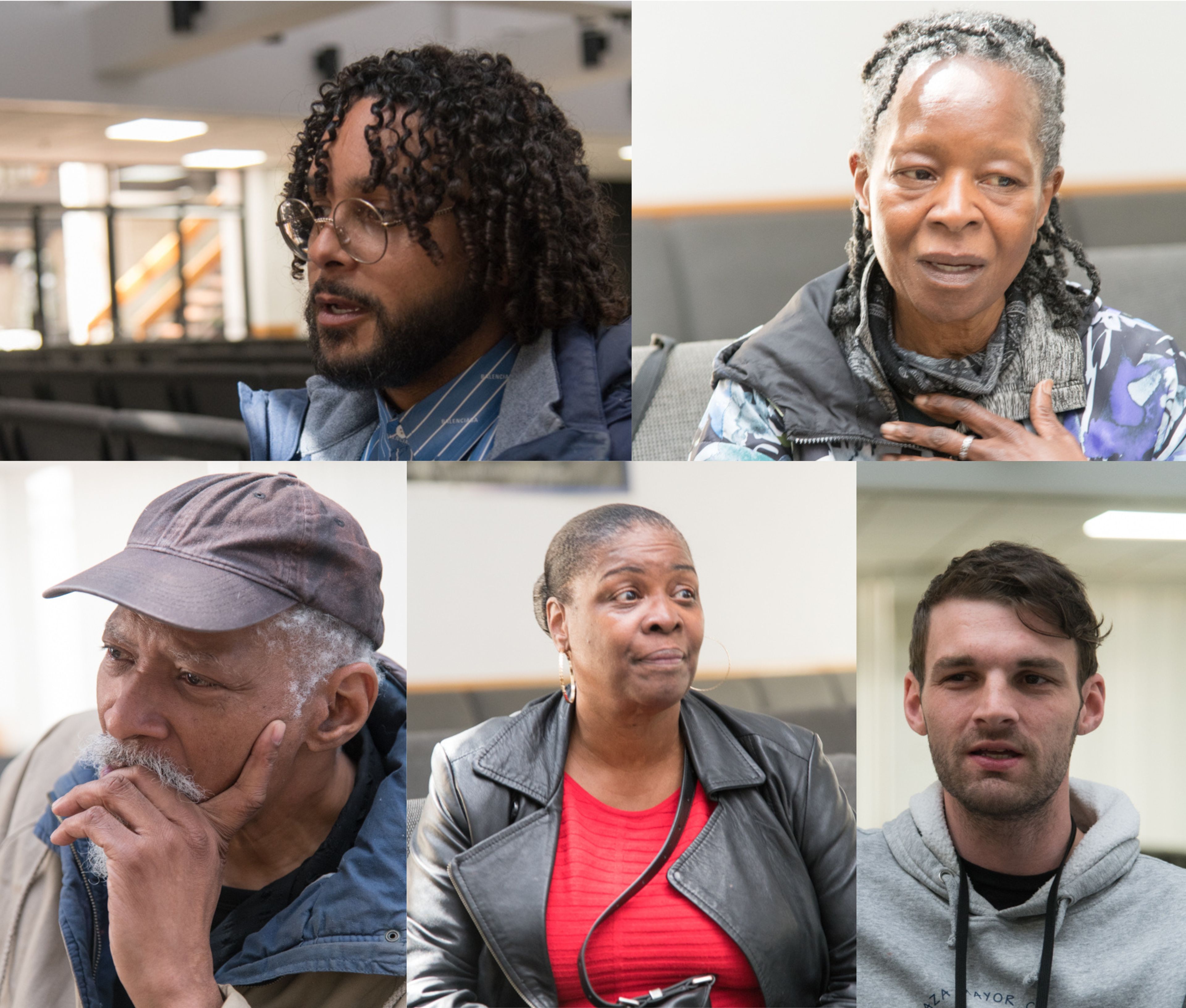
Specialty/Key Words: Washington D.C., Healing, Community, Heritage, High blood pressure, Tradition, Corn pudding Recipes, Hydration, Pathways to Housing, Stress, Oral histories, Caregiving, Legacy, Memory, Remedies, Storytelling, Mental health, Intergenerational knowledge, Faith, Religion
Interview Summary: Tim Hall, Luke Blackwell, James Birth, Phyllis Metts, and Janice Barnes participated in a group interview led by Anita Gonzalez which explores how food functions in Black communities in Washington, D.C. as a source of health, healing, heritage, and connection. Janice Barnes opened by sharing her family’s generational history with high blood pressure and how food-based remedies like apple cider vinegar and dietary adjustments serve as both preventative health practices and conversation starters within her family. Phyllis Metts emphasized hydration and caregiving around eating in old age, while Tim Hall and Luke Blackwell, both with Pathways to Housing, discussed food as a way to build trust and community with their clients. Hall also reflected on how food choices affect mental and physical wellness. James Birth highlighted the role of food in family bonding, stress relief, and dignity for those experiencing homelessness. The conversation expanded to include passed-down recipes, family traditions, and the role of food in cultural storytelling, with Janice sharing the importance of her grandmother’s corn pudding recipe. The interview closed with reflections on food as legacy, communication, and shared memory within Black communities.
Audio Clip:
Catherine Williams
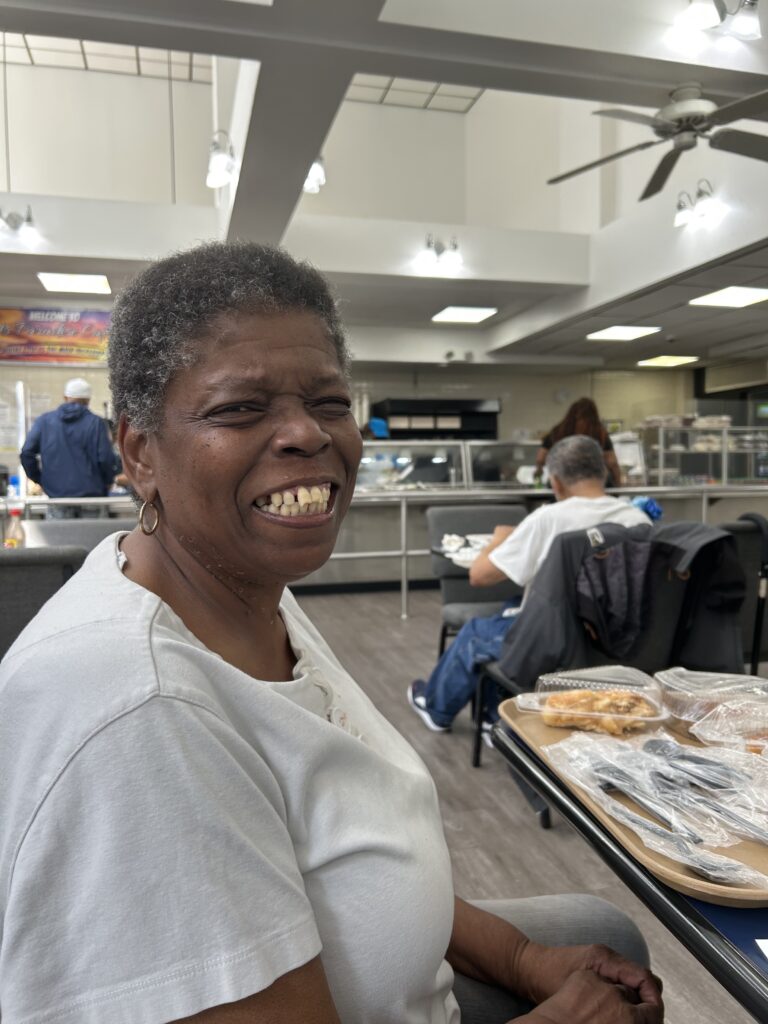
“Greens heal me. Onions help me when I have a cold. Ginger is healing.”
What is one special family food tradition, and can you tell us a story about it? Why is it important to your family?
“Potato Salad: My brothers love my potato salad and that would bring the family together.”
Dennis Wilson
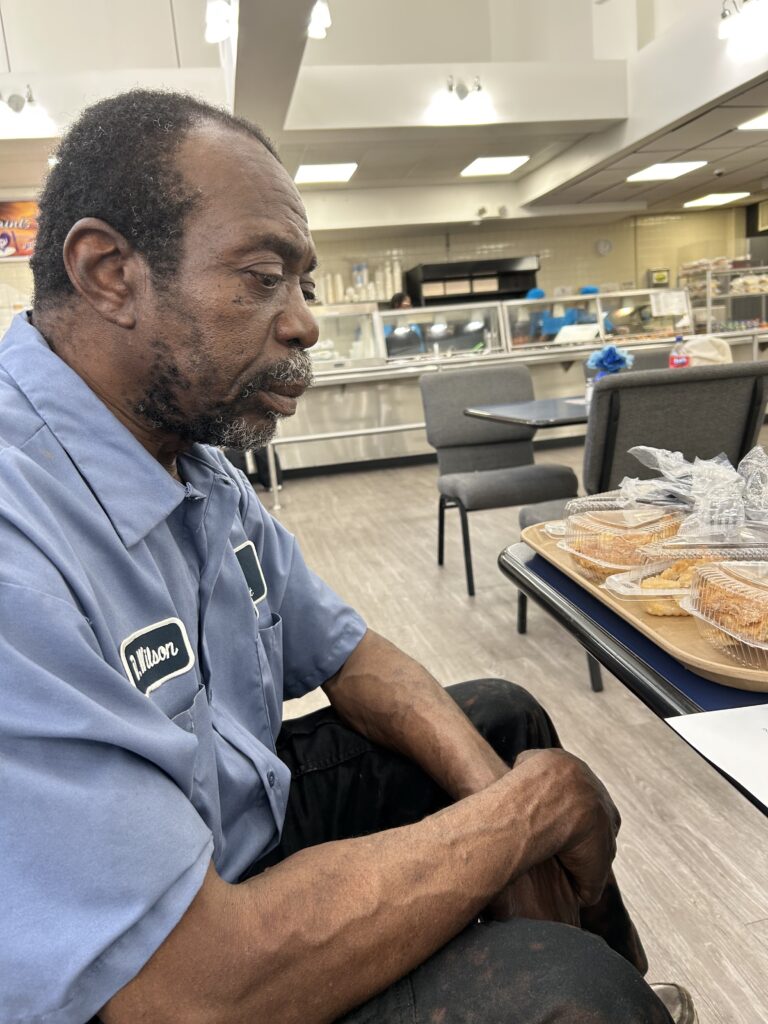
“Short description of interview.”Everyday I cook for my family. Everyday is special.”
Do you have a family recipe you would honor us by sharing? If so, please share it below:
“Chicken: Spicy, jerk, curry and brown stew chicken.”
How does food connect you with your community?
“I sell food to my community.”
Vanessee Burns
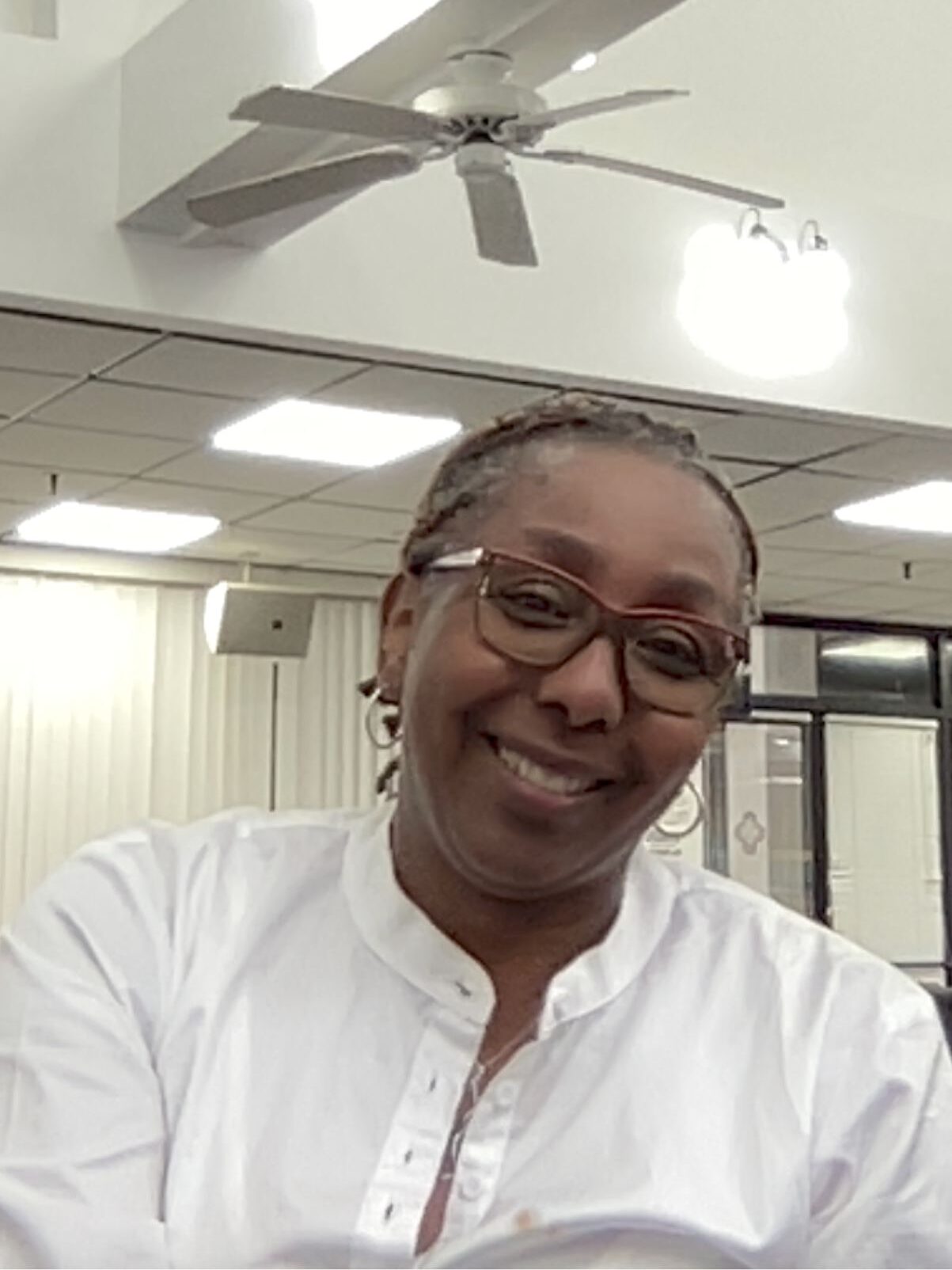
“Laughter can occur over food. You can push out the rest of the world.”
Do you have a family recipe you would honor us by sharing? If so, please share it below:
“Goolash: tomato base, meat of choice, peppers, onions, okra, add rice.”
Timothy McDaniel
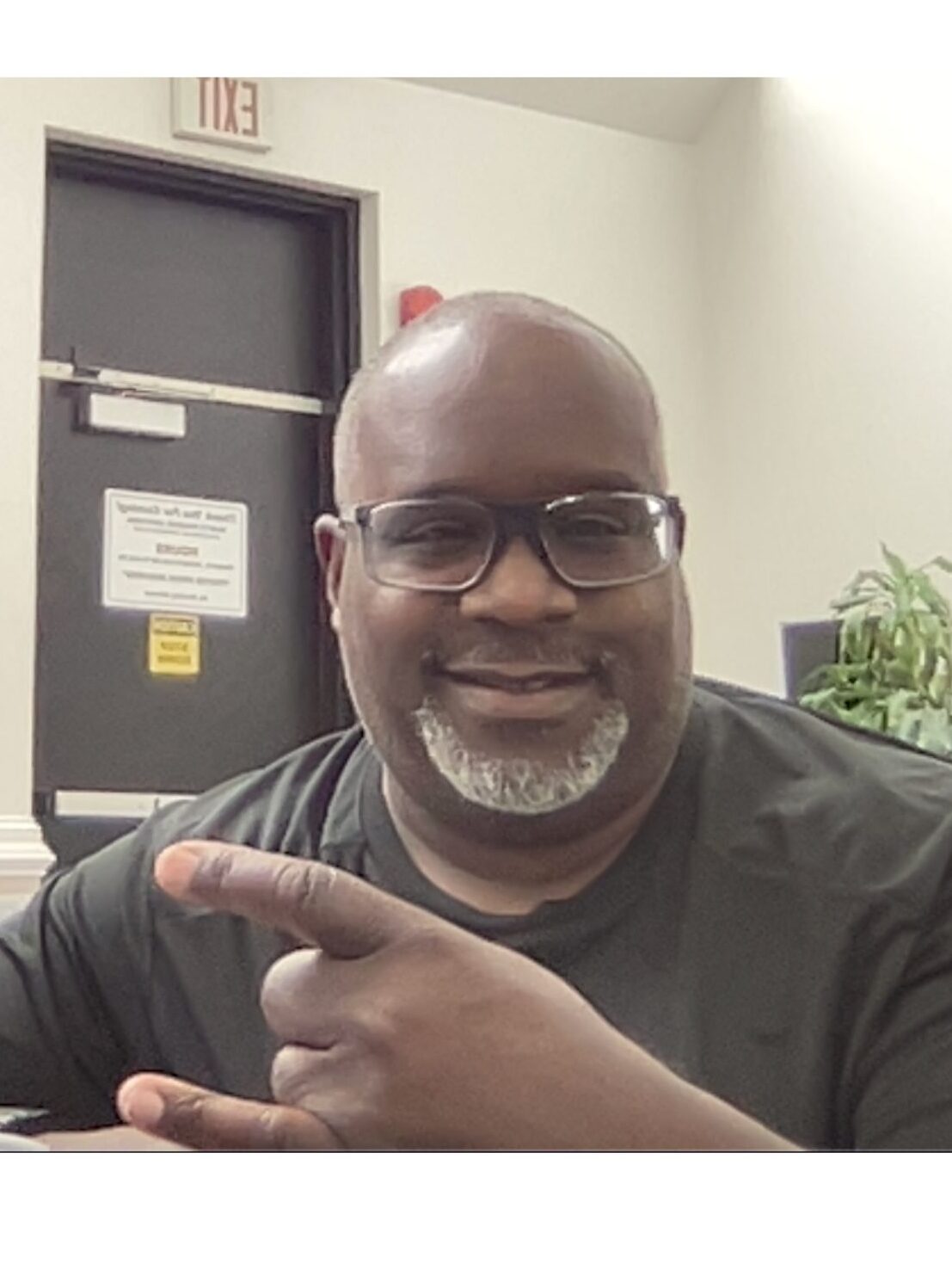
“Food helps my mental health. Some people eat to live, some live to eat. A good cook helps.”
What is one special family food tradition, and can you tell us a story about it? Why is it important to your family?
“Last 35 years, we gather on Christmas eve, we all open at least one present. We have a meal to celebrate..”
Pamela Pugh
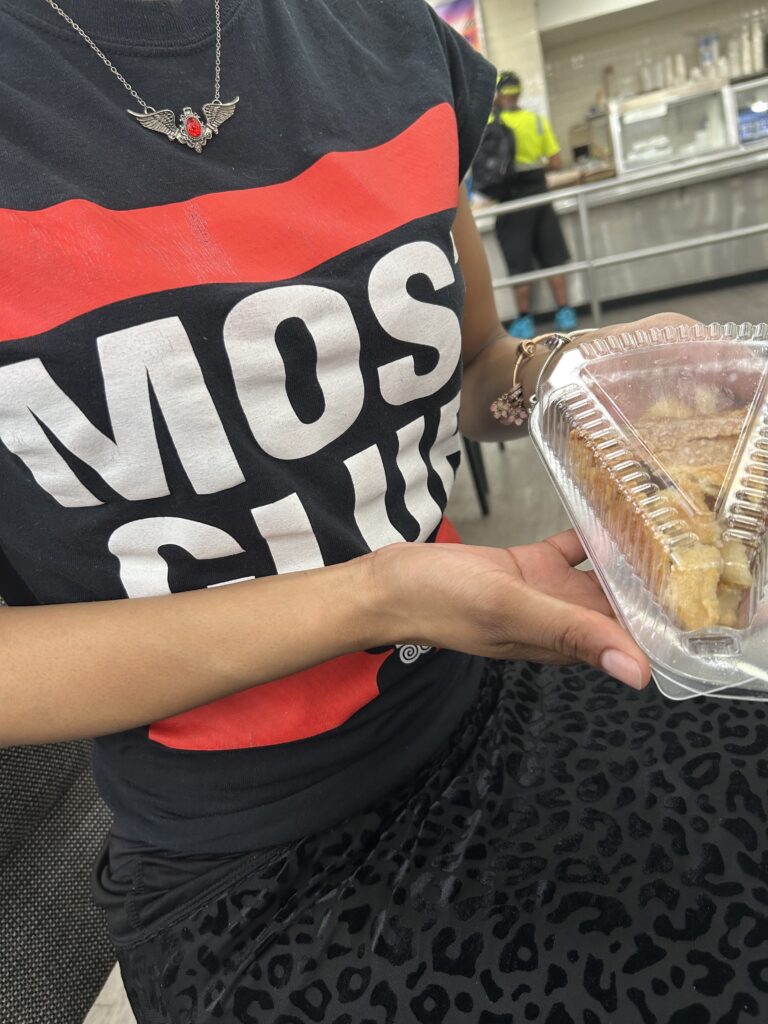
“Healthy is very important in my family. I don’t like working out so my eating habits are important. I stay away from fats, sugars. I love foods from other cultures. Snacking healthy.”
What is one special family food tradition, and can you tell us a story about it? Why is it important to your family?
“Soul food, leave it to the older generations to teach us. My grandmother is the lead mac n cheese cook. Learn from the older generations.”
Bonita Evans
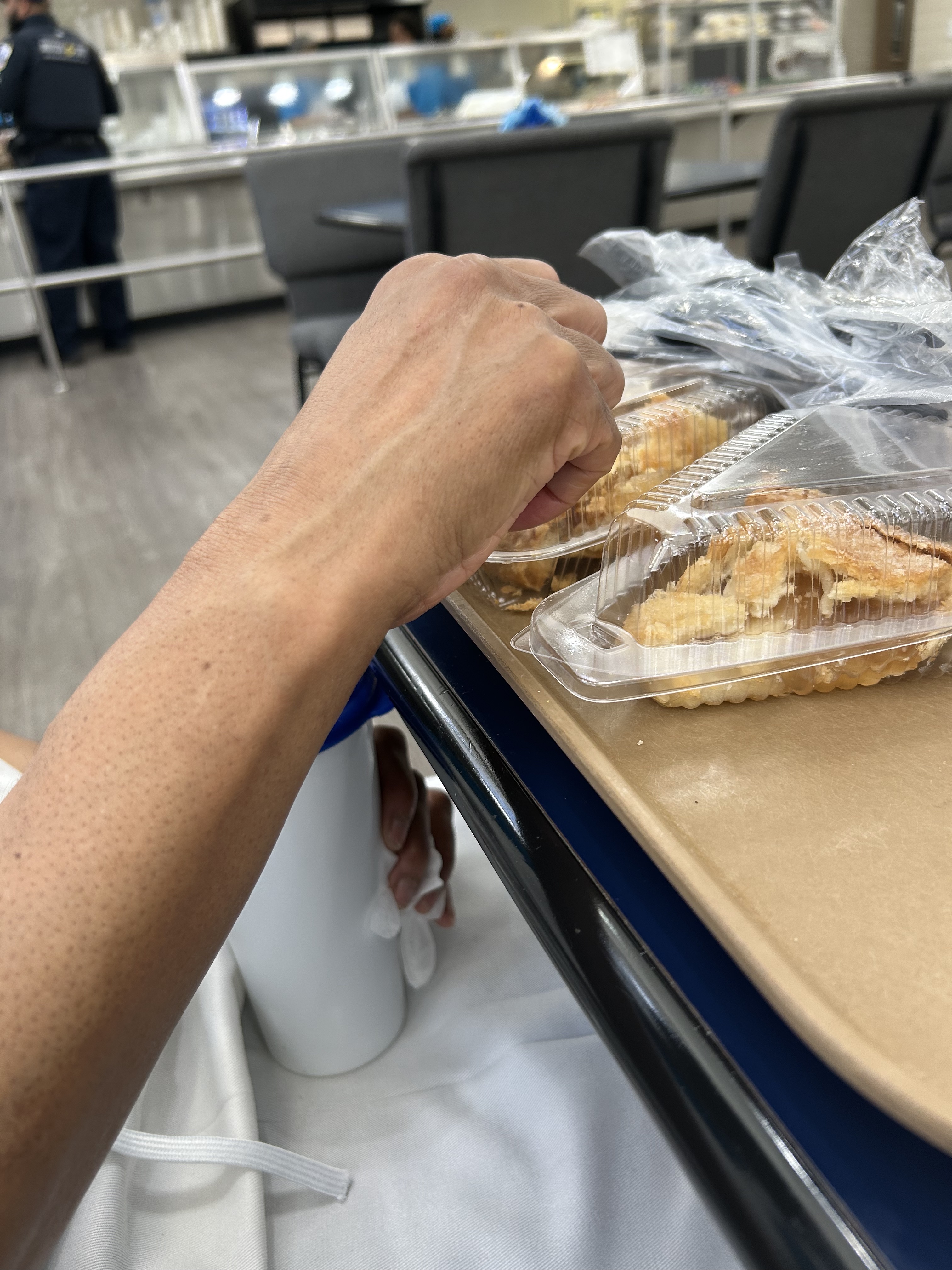
“Community involvement by working at the restaurant. Seeing and meeting lots of people.”
How do you use food for healing?
“Nutrition, physical, emotional, mental healing. Sharing, sitting together, taking food to someone.”
Regina Williams
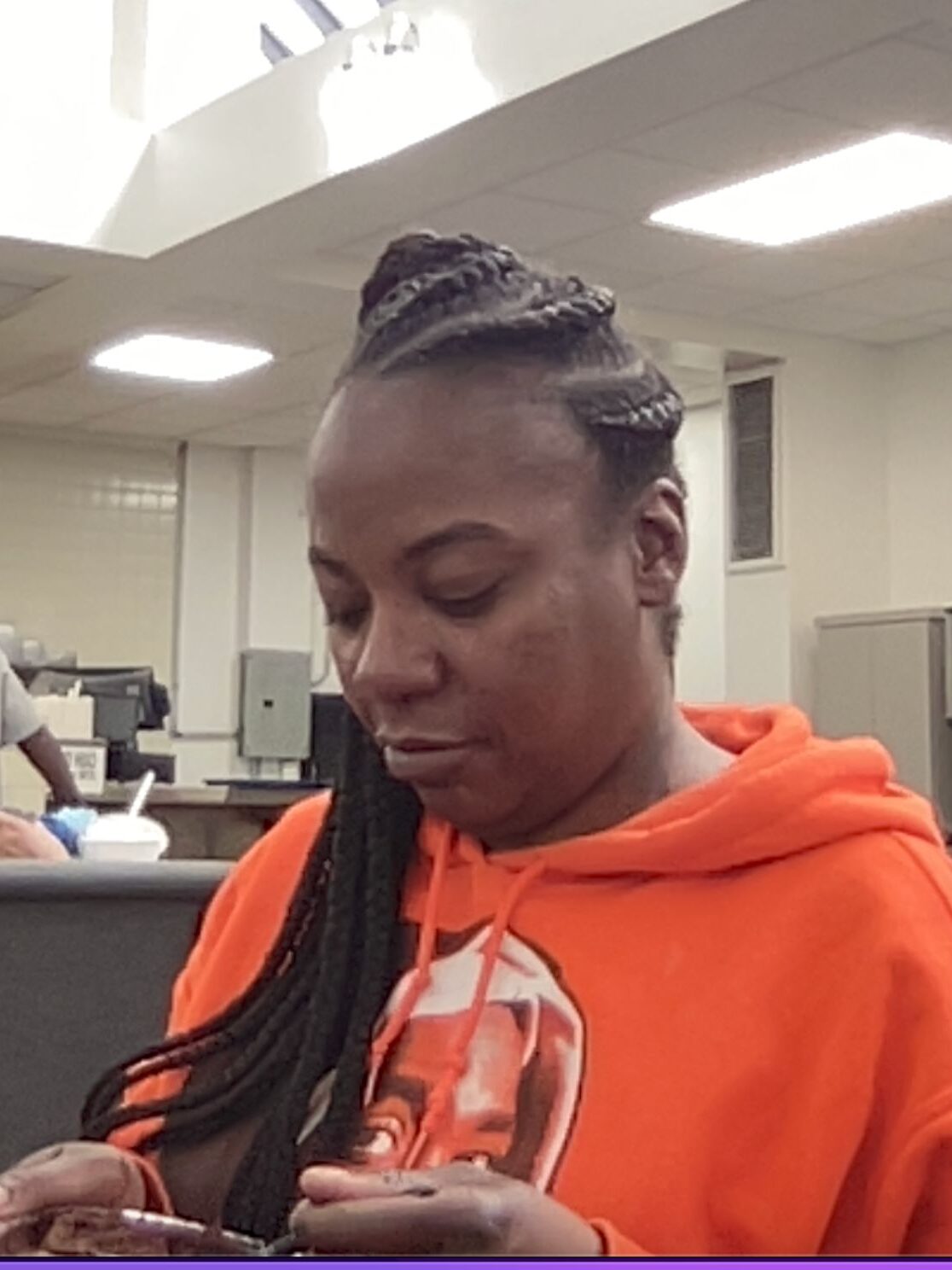
“Mac n Cheese: noodles, flour, eggs, butter, cheese.”
How do you use food for healing?
“You need nourishment when you are weak. Stress eating is not good. I eat salads, tuna instead of greasy/fried foods. Fruits and veggies, water.”
Carolyn Graham
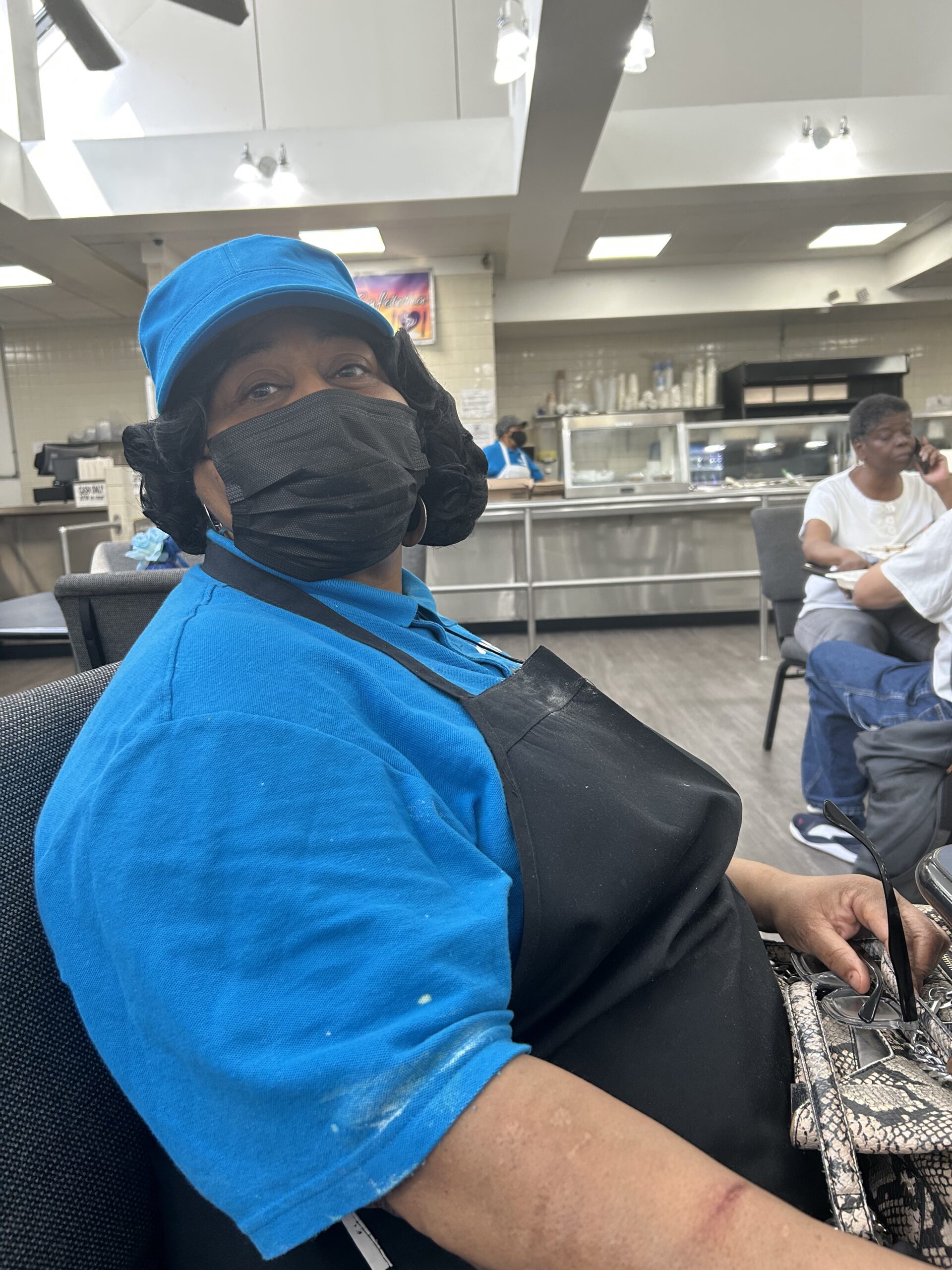
“It’s a social gathering. People love to eat and communicate and enjoy each other. It’s a social opportunity.”
What is one special family food tradition, and can you tell us a story about it? Why is it important to your family?
“Thanksgiving – everybody gets together, coming from out of town, to socialize, all over food. We have a family food tradition of turkey.”